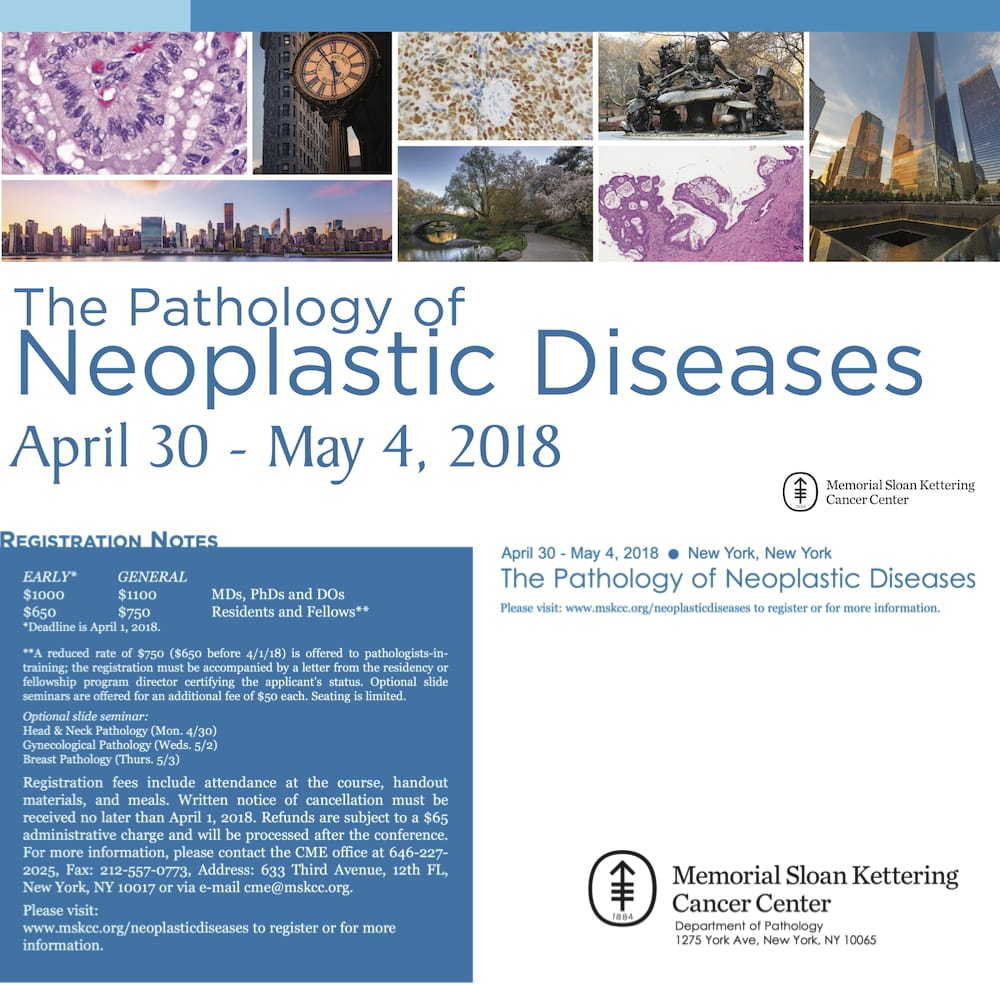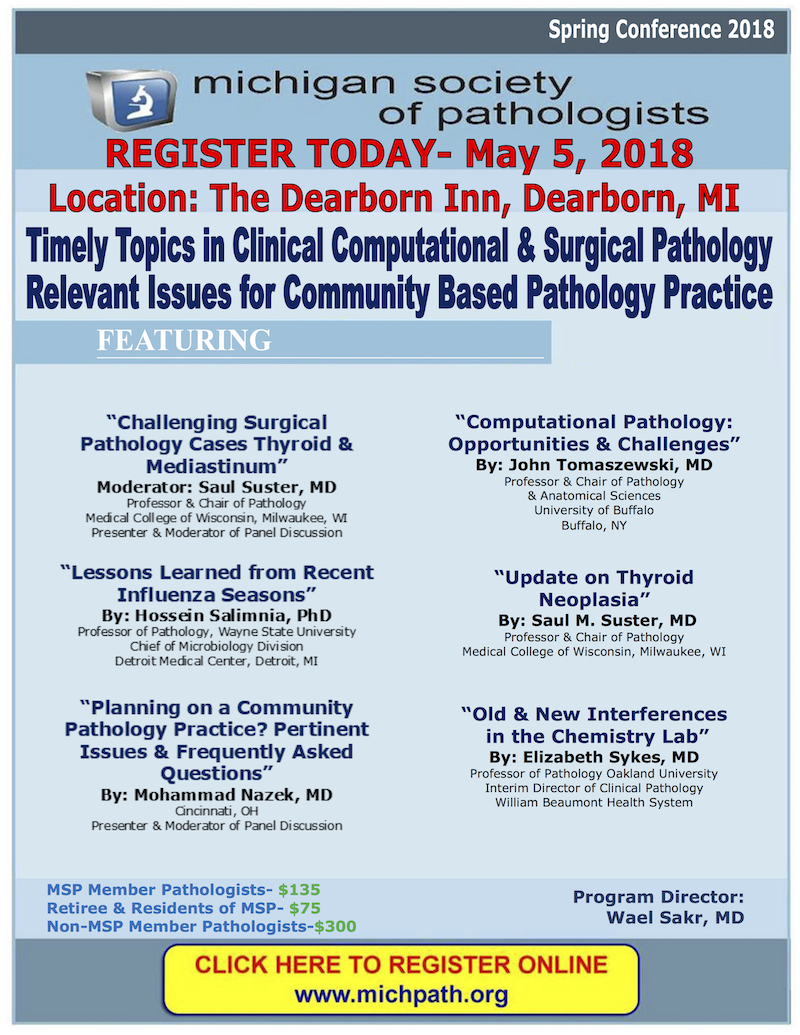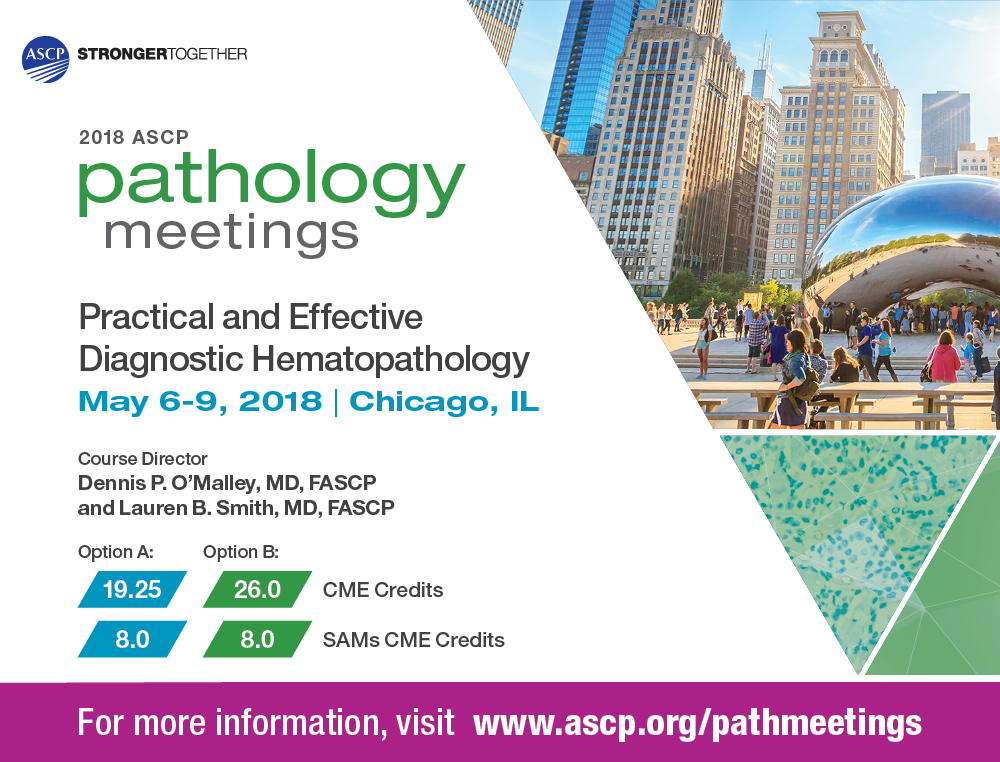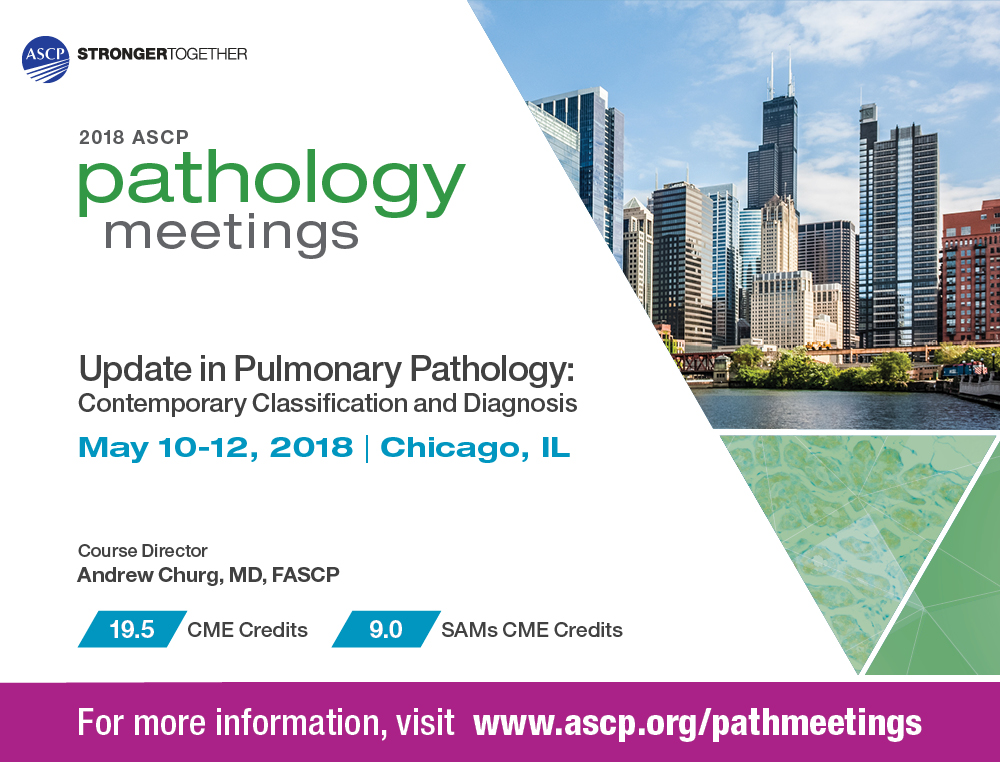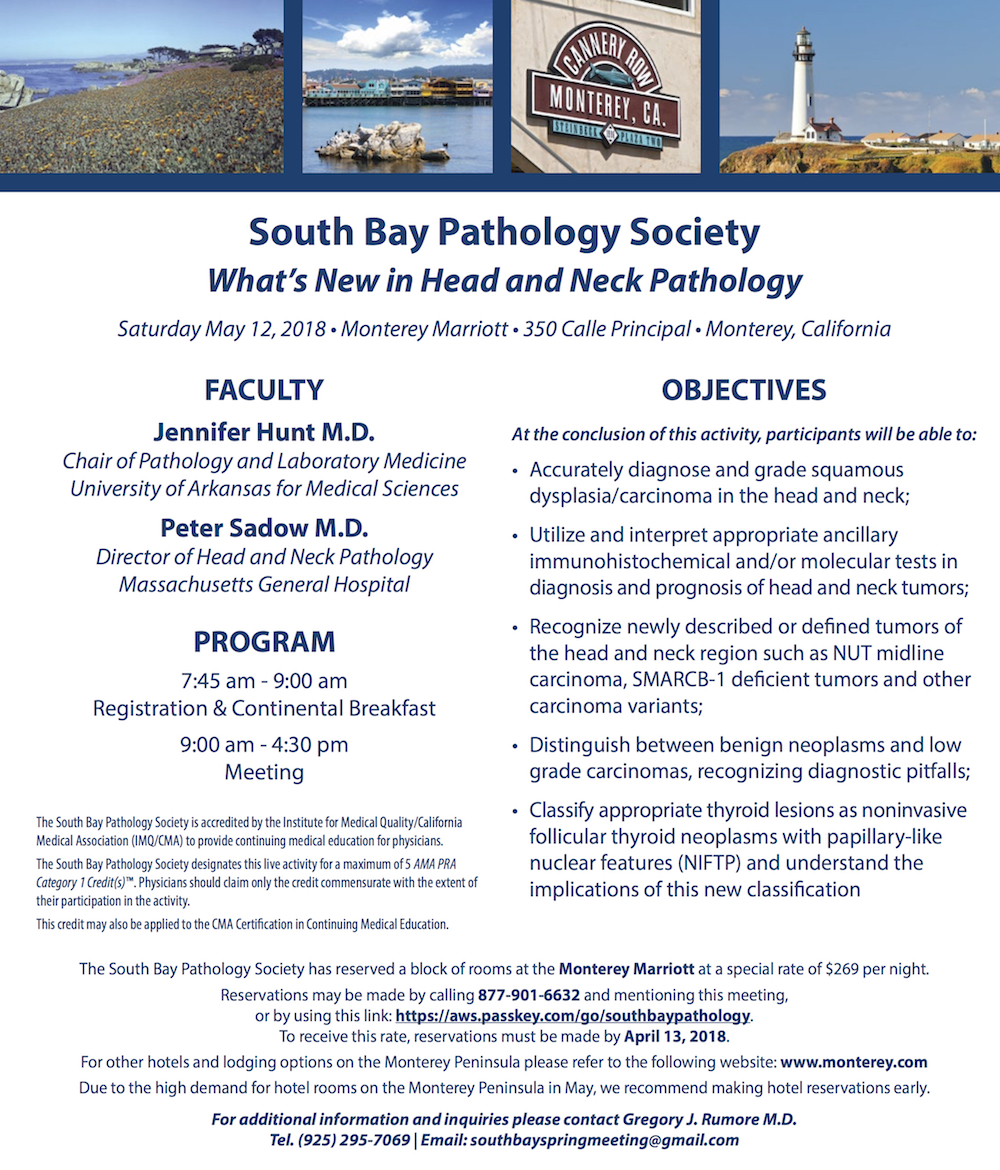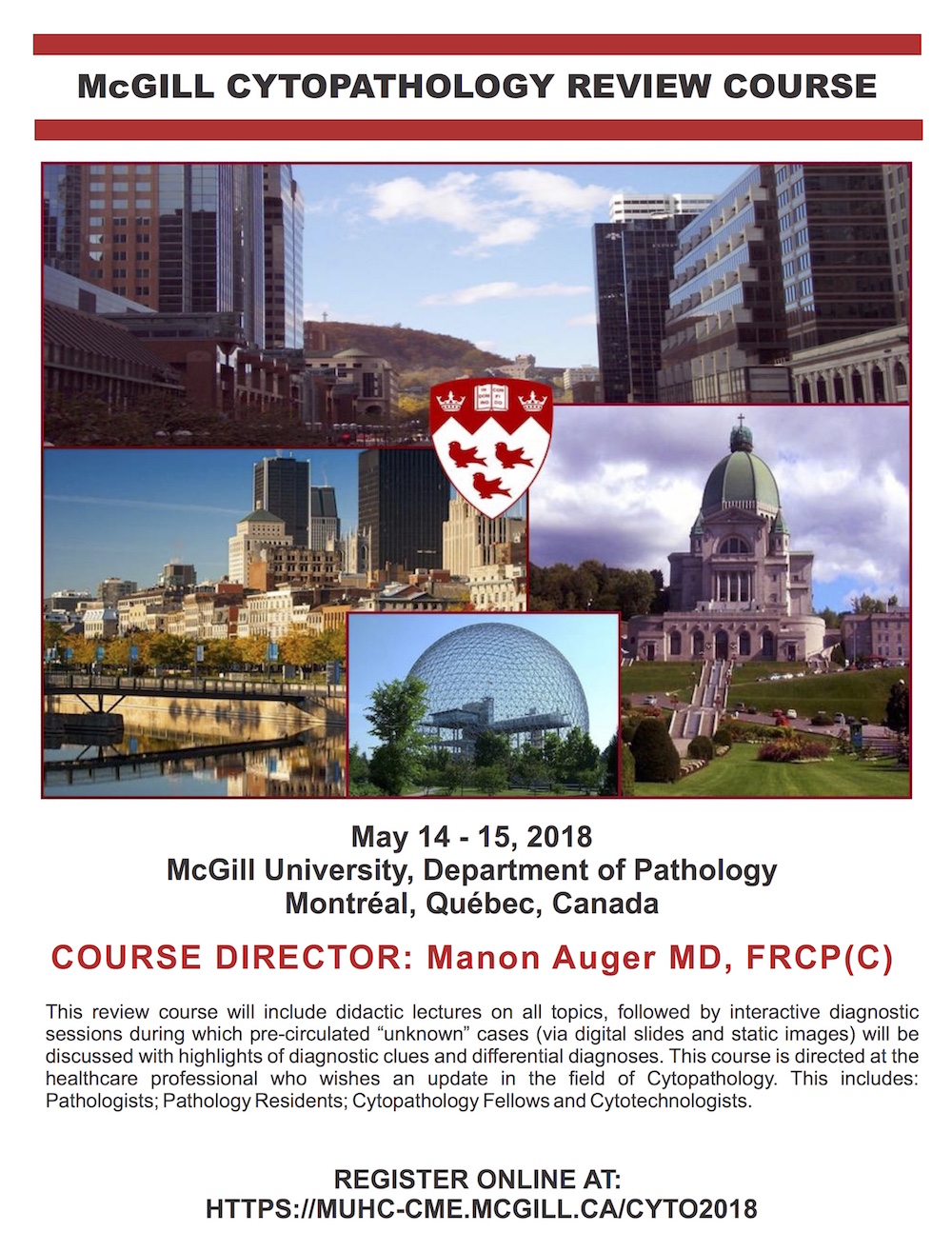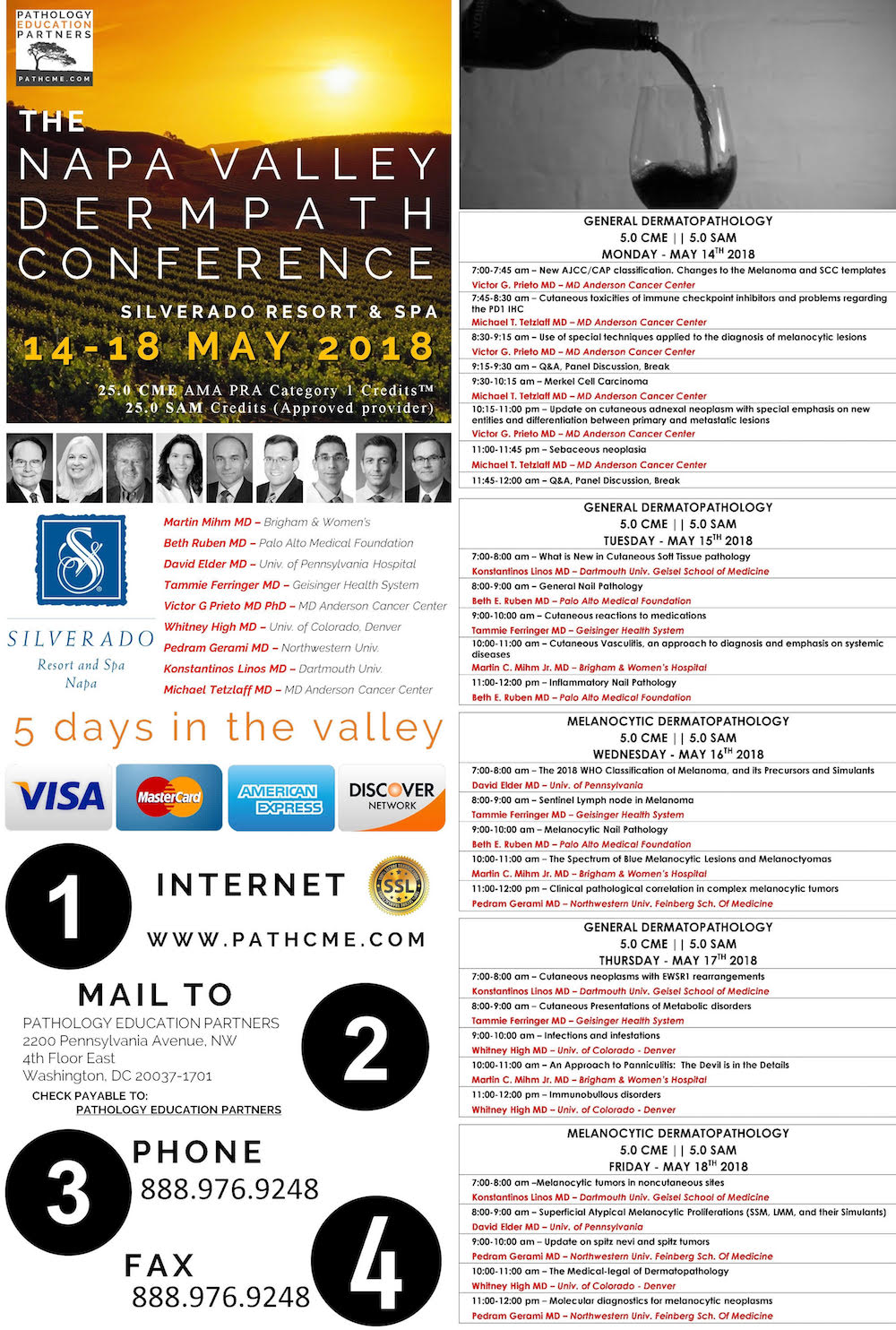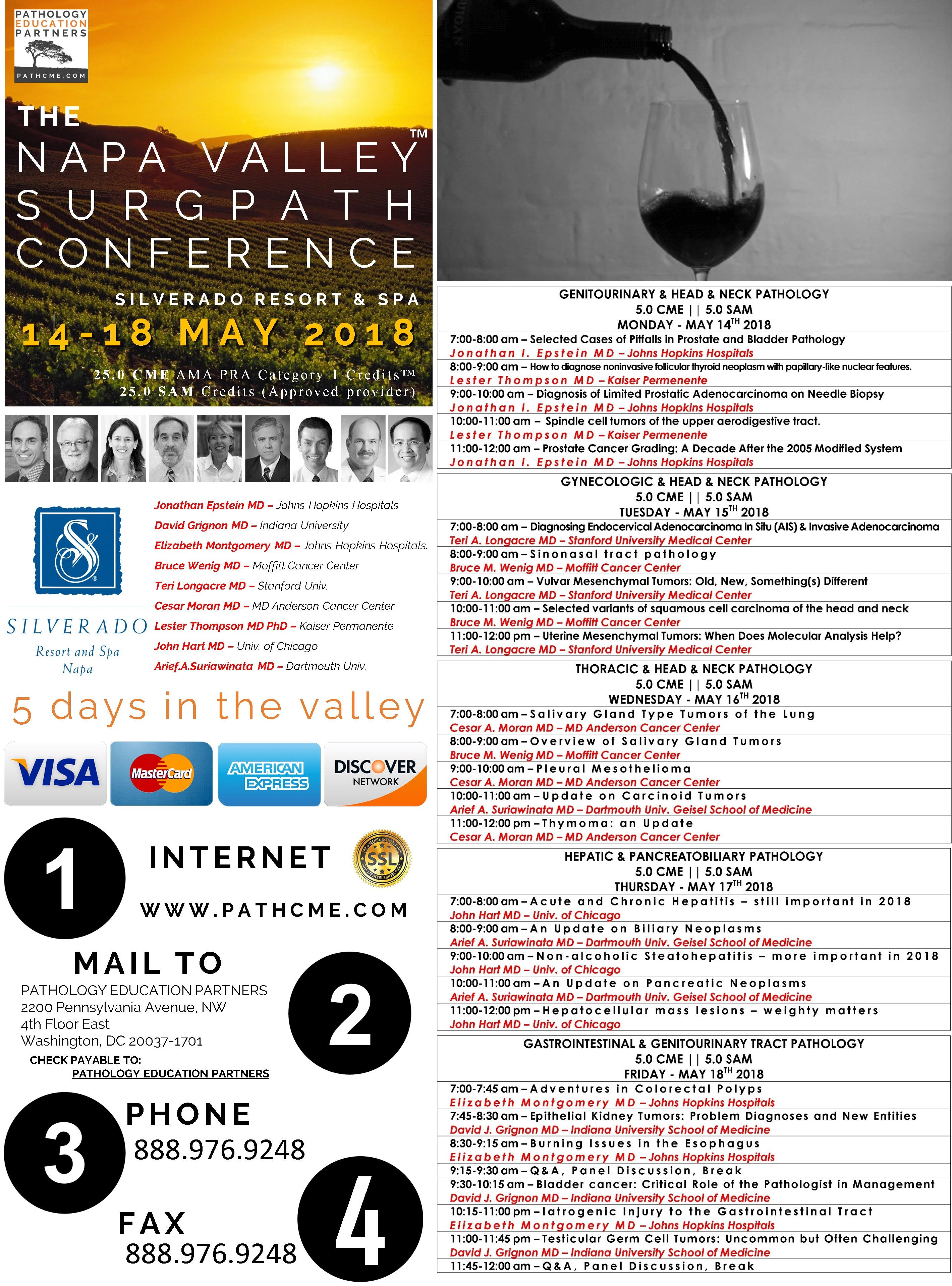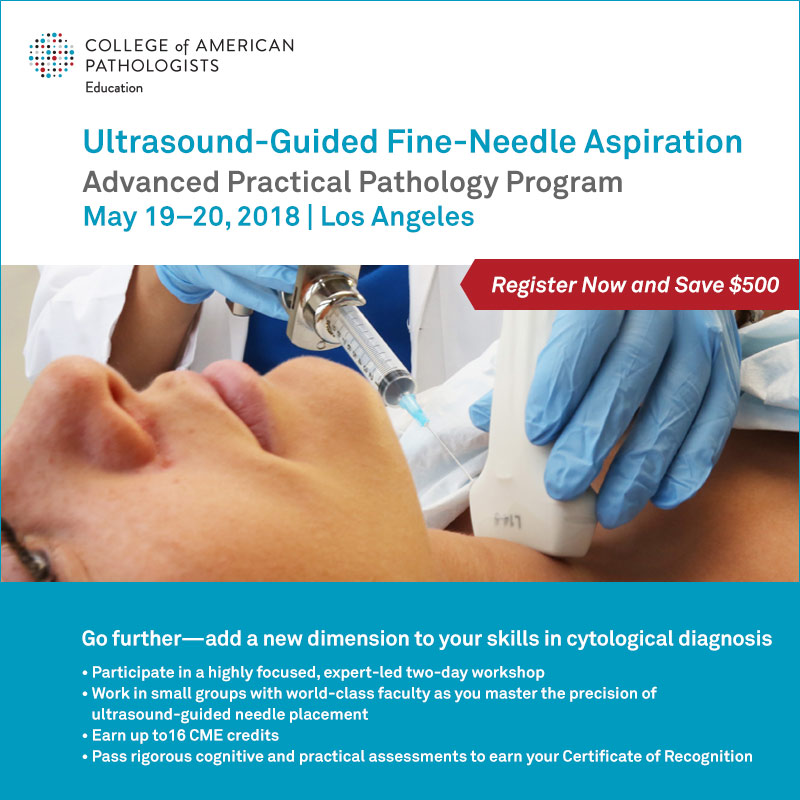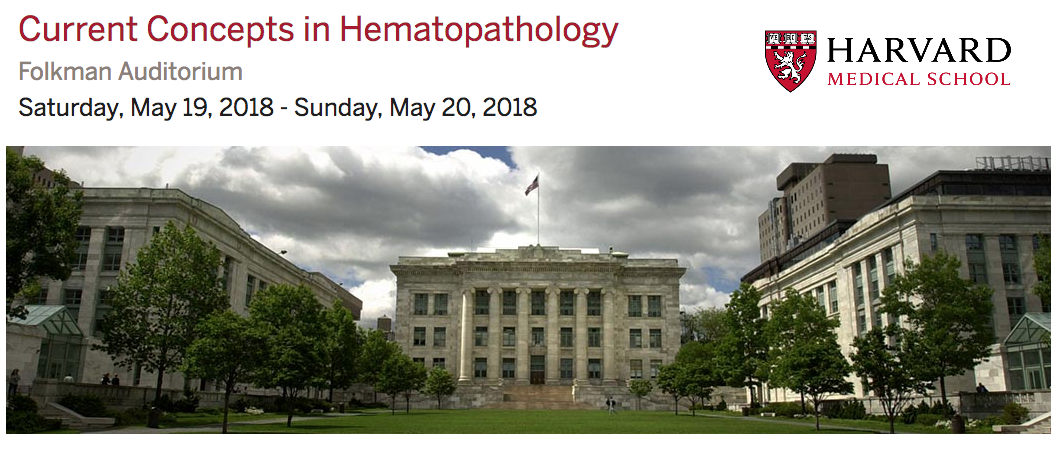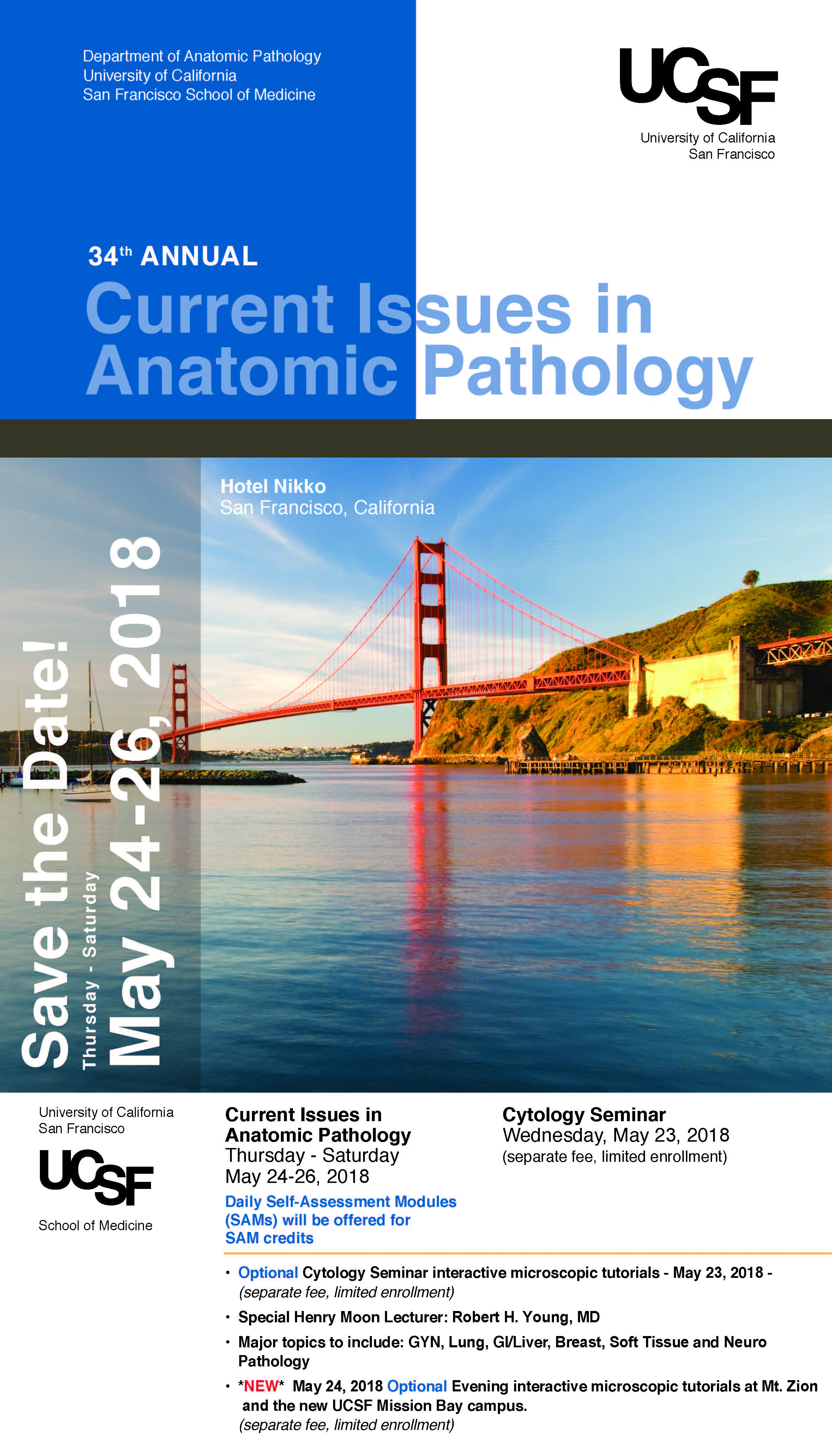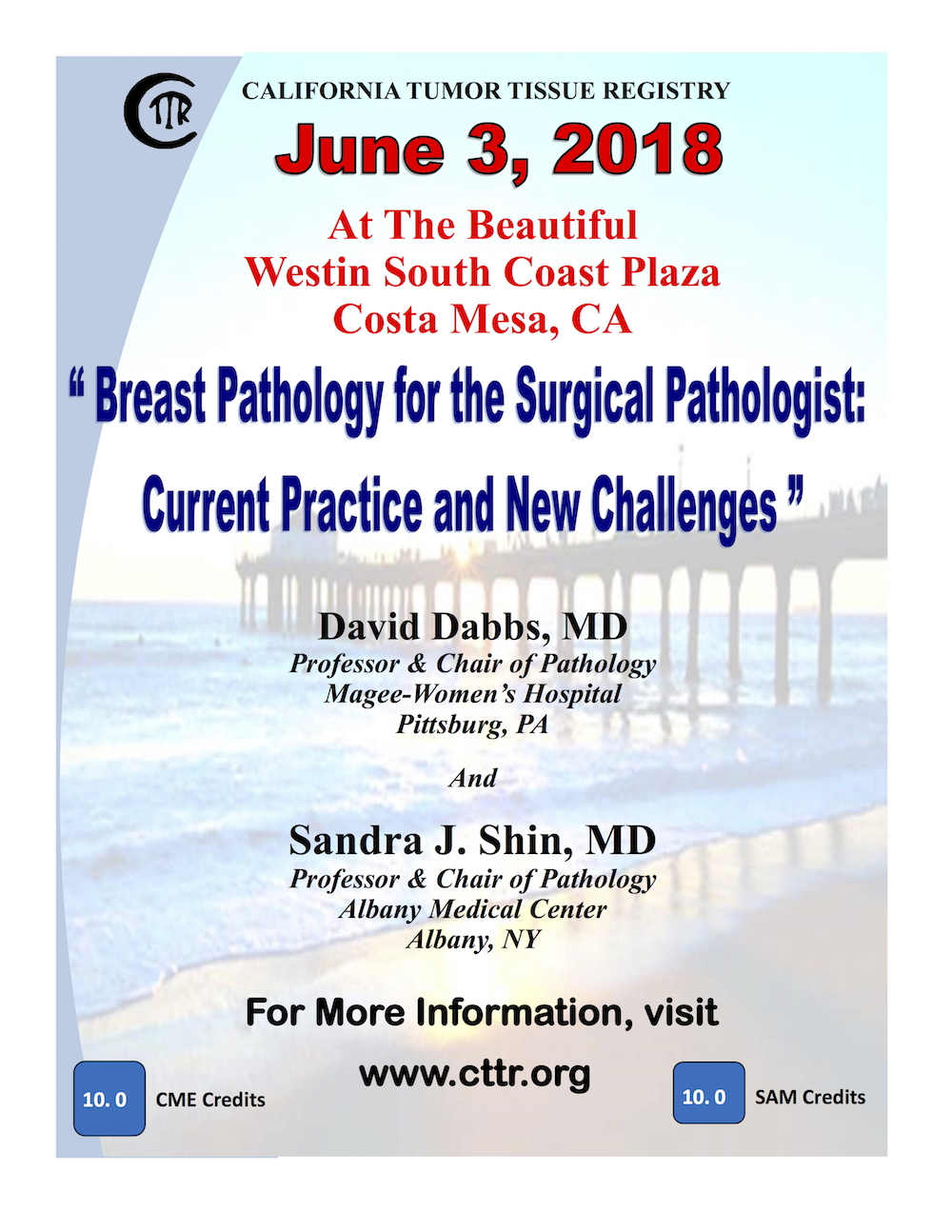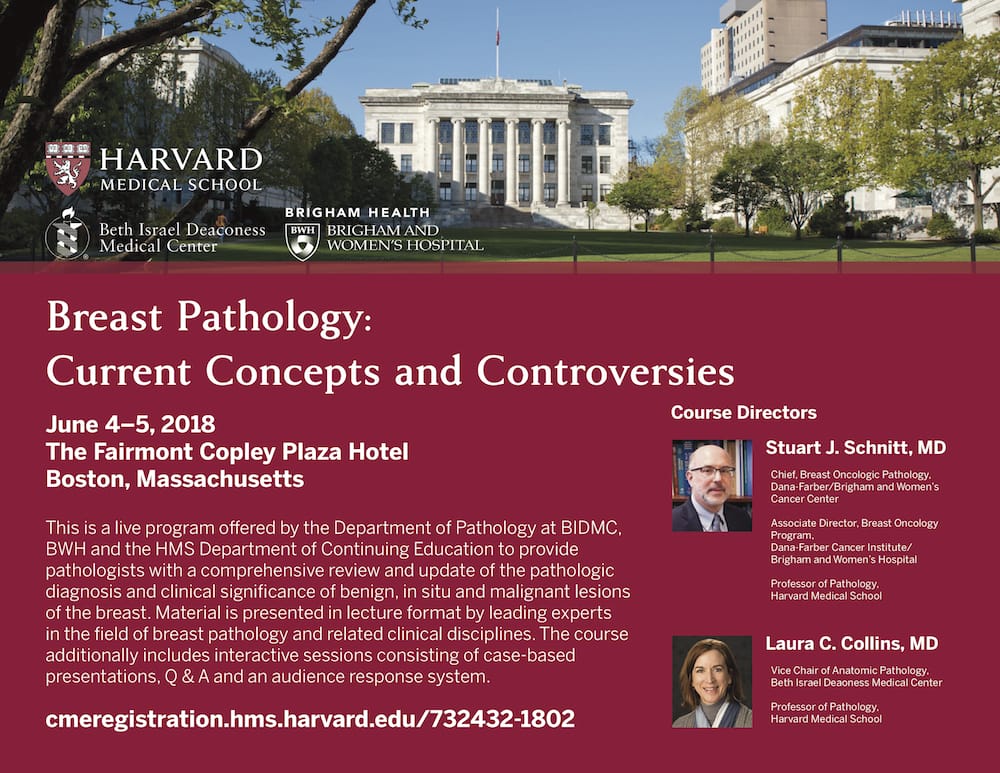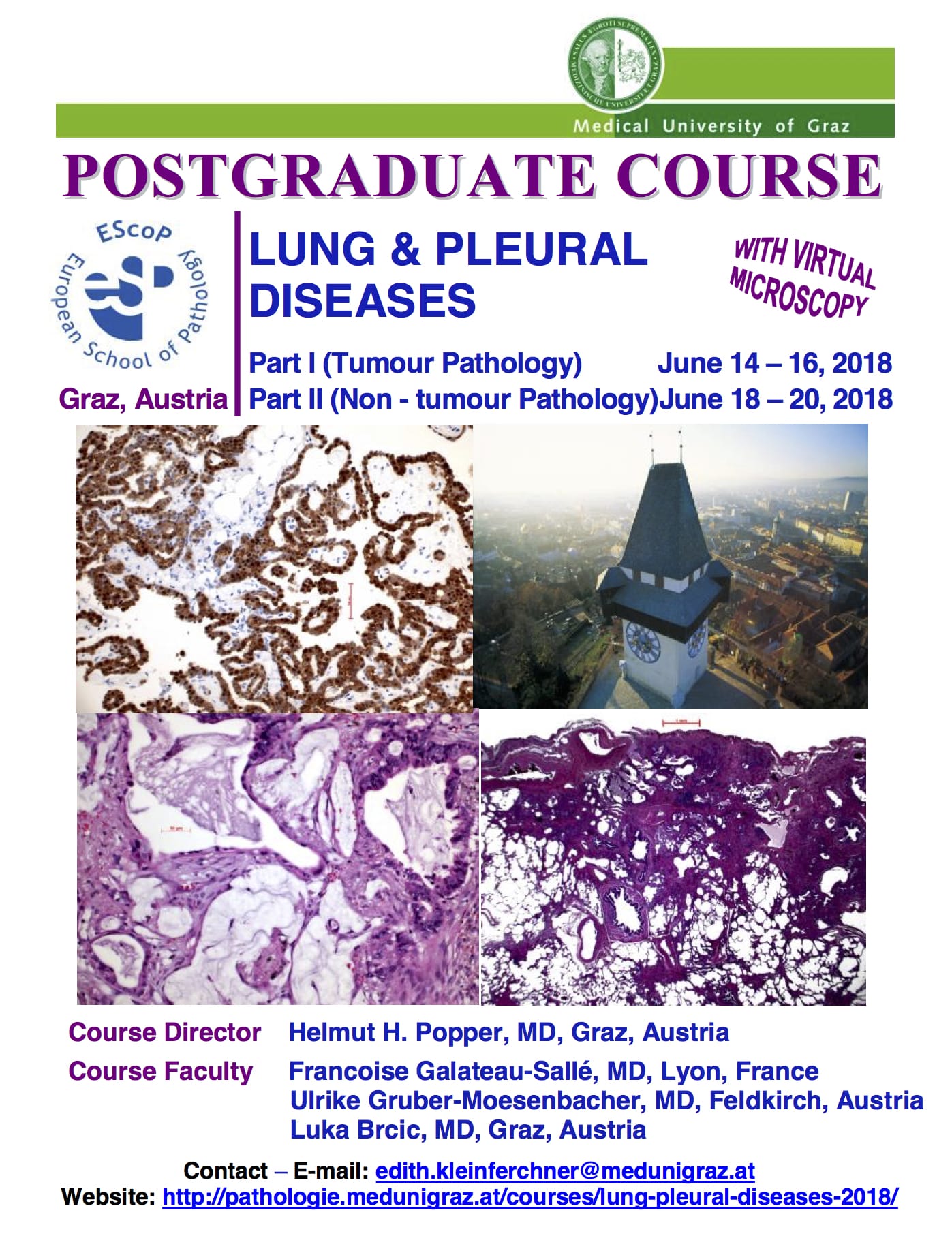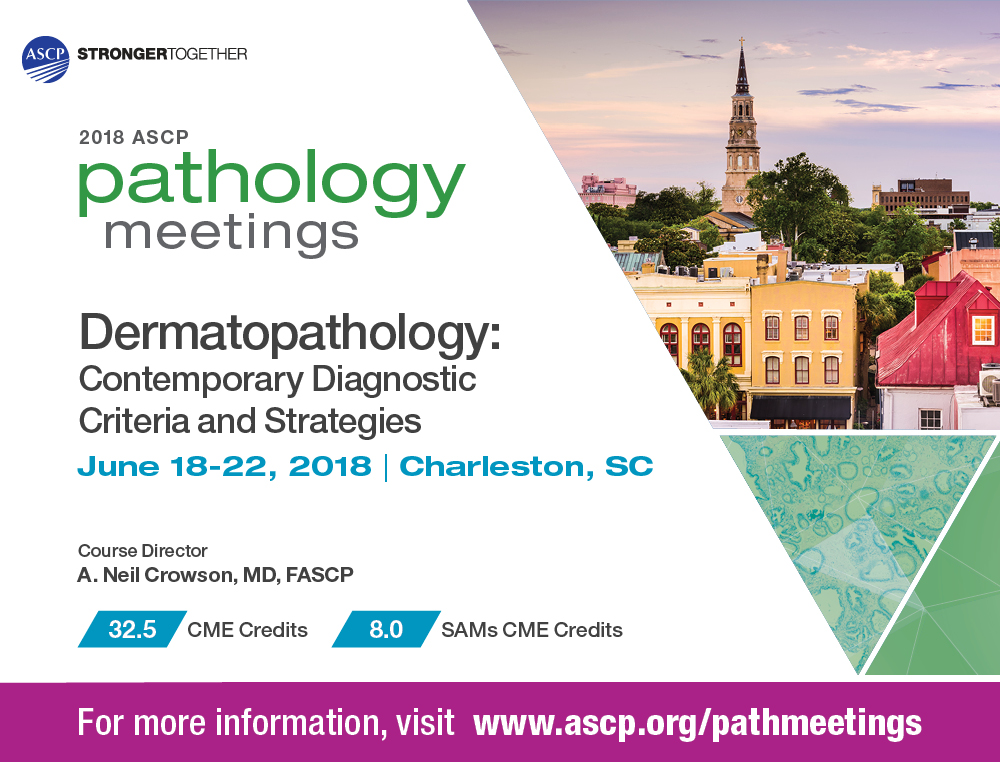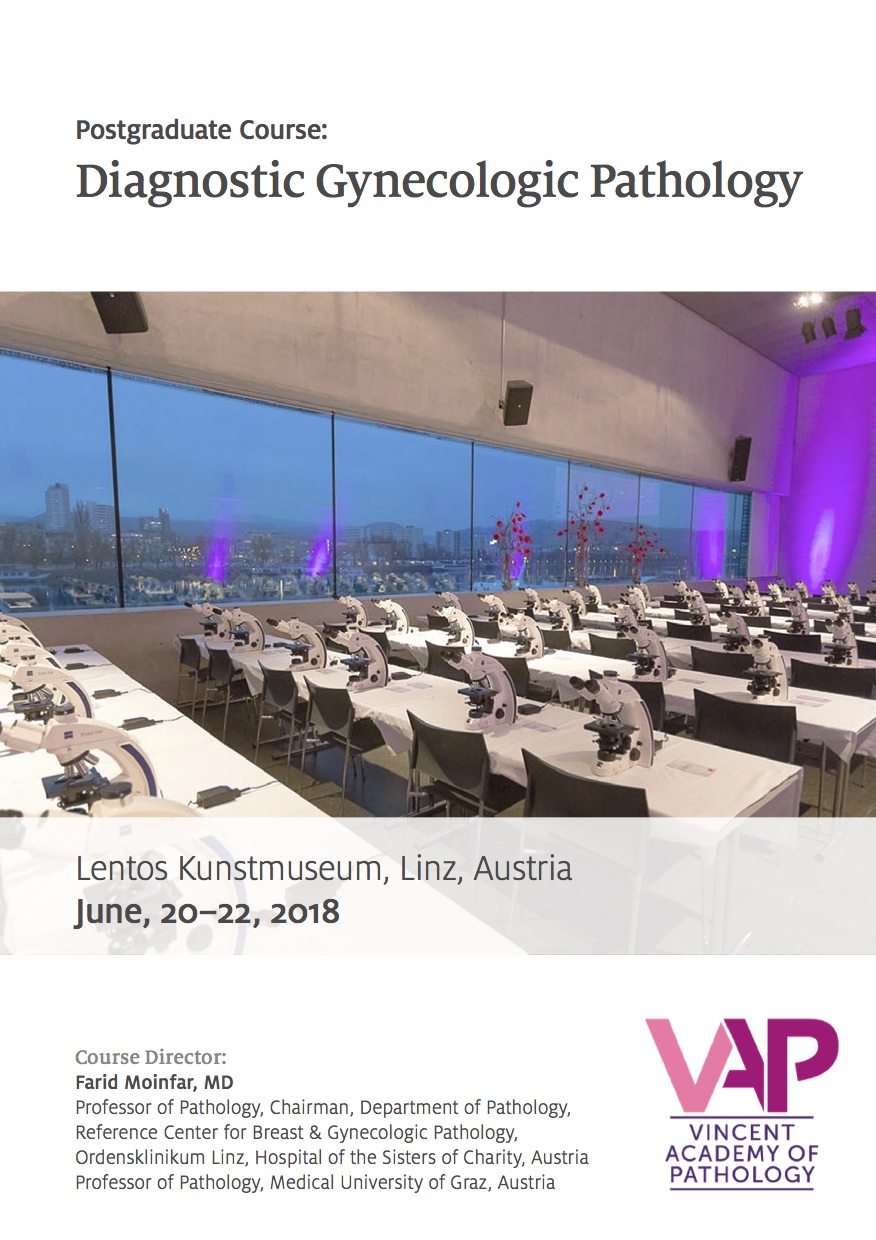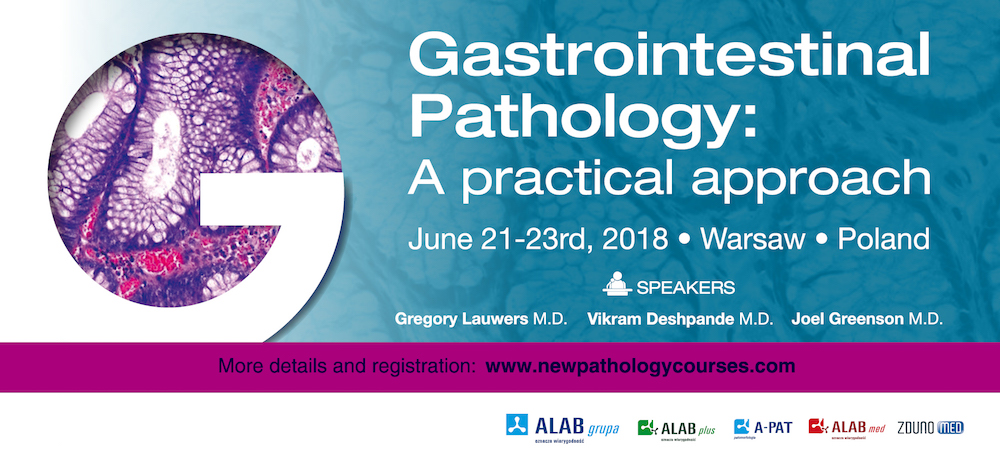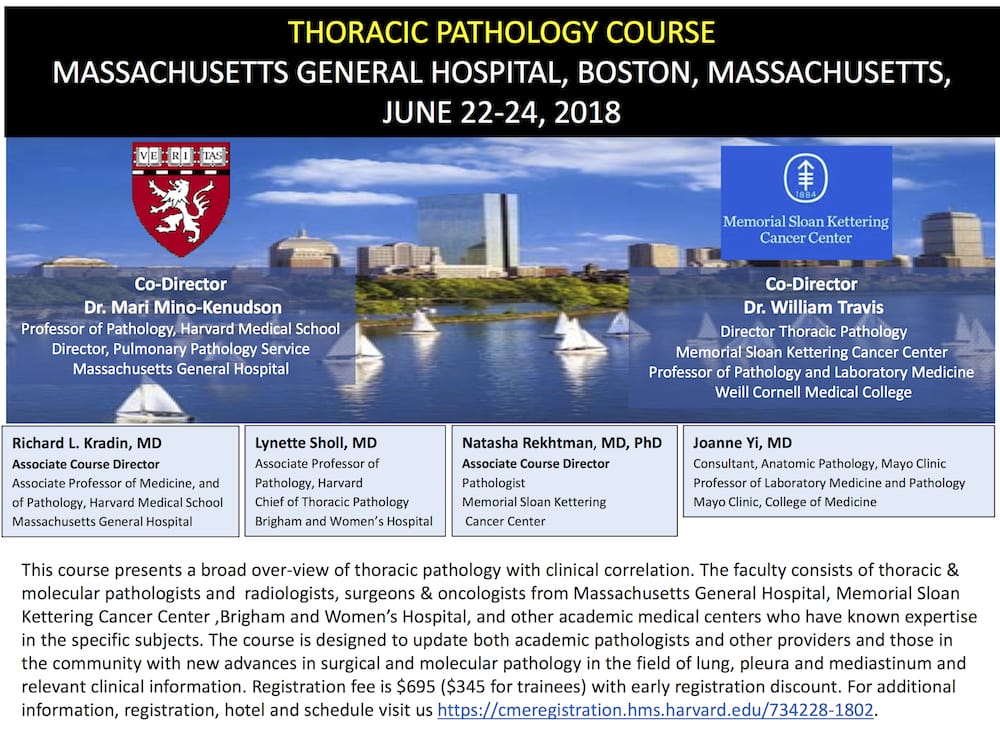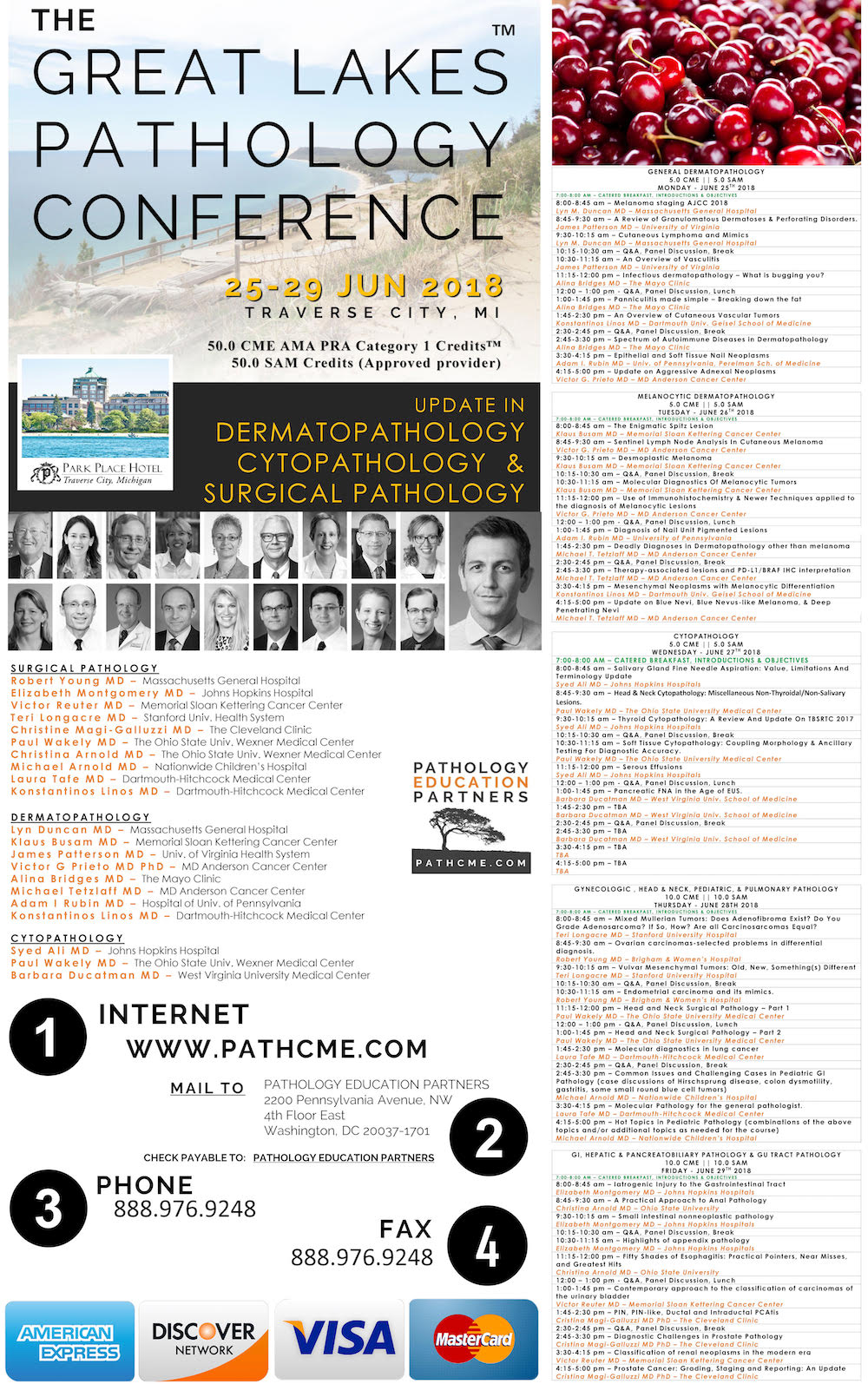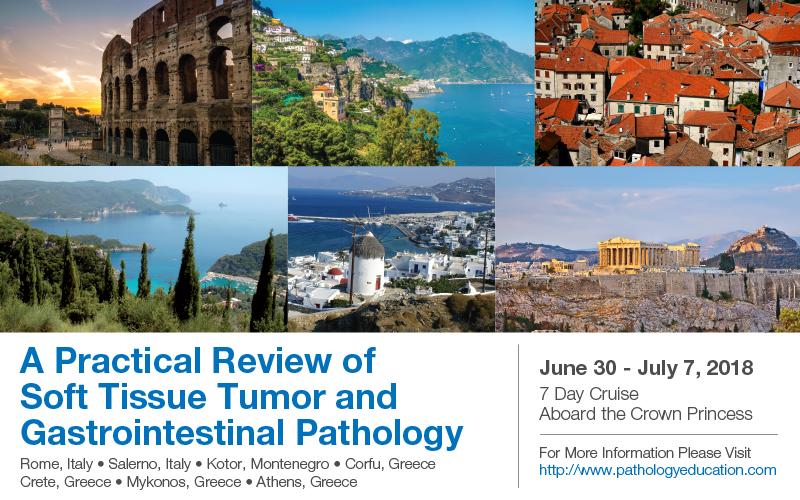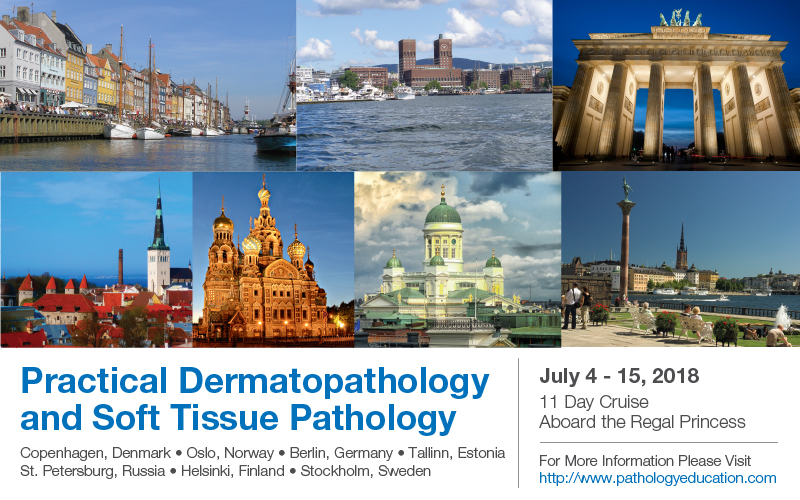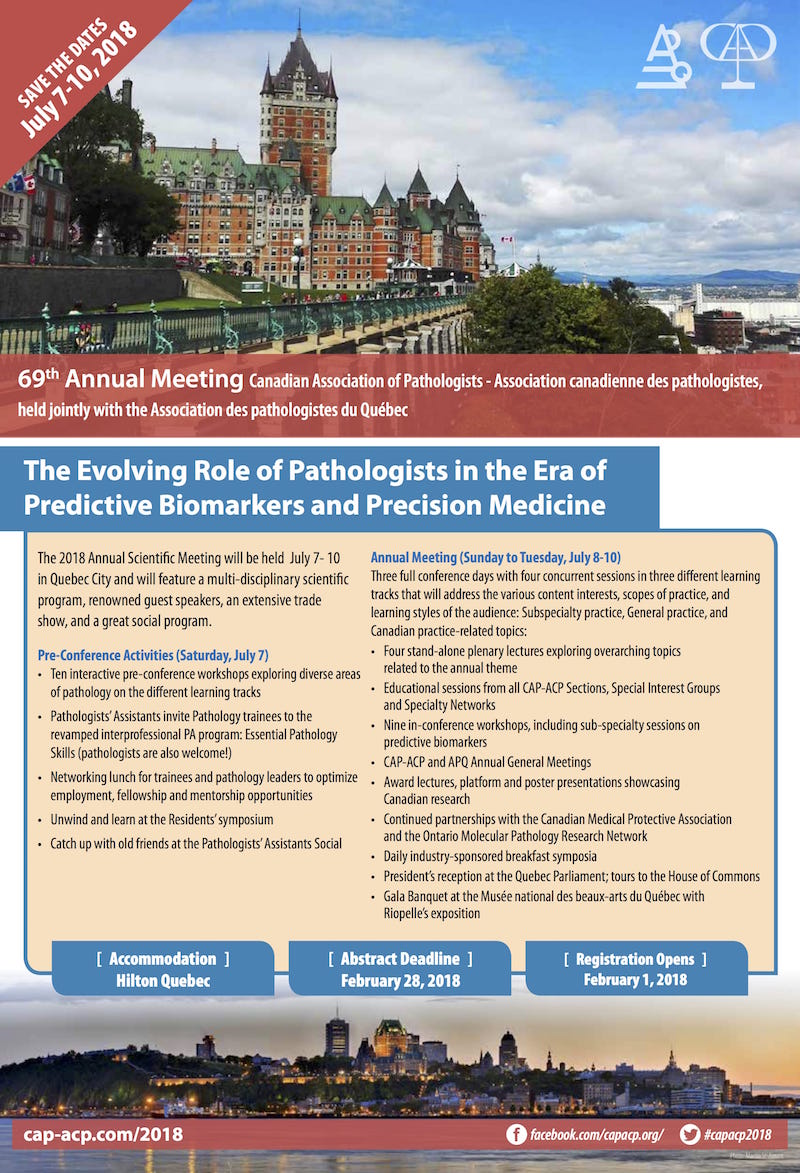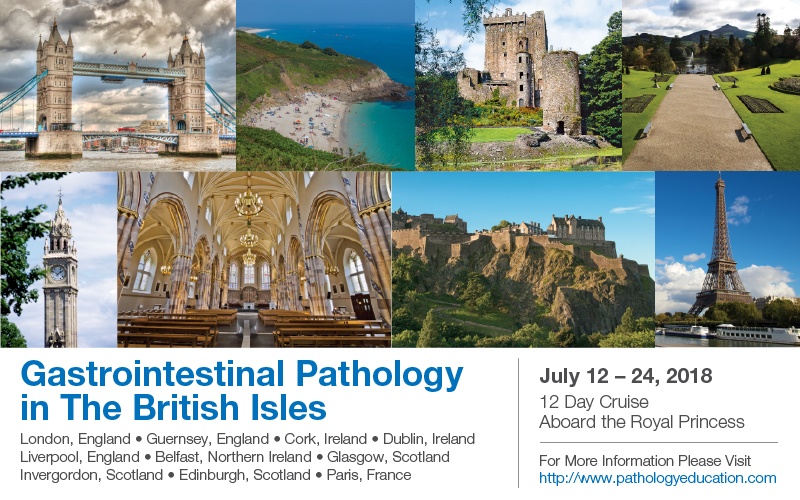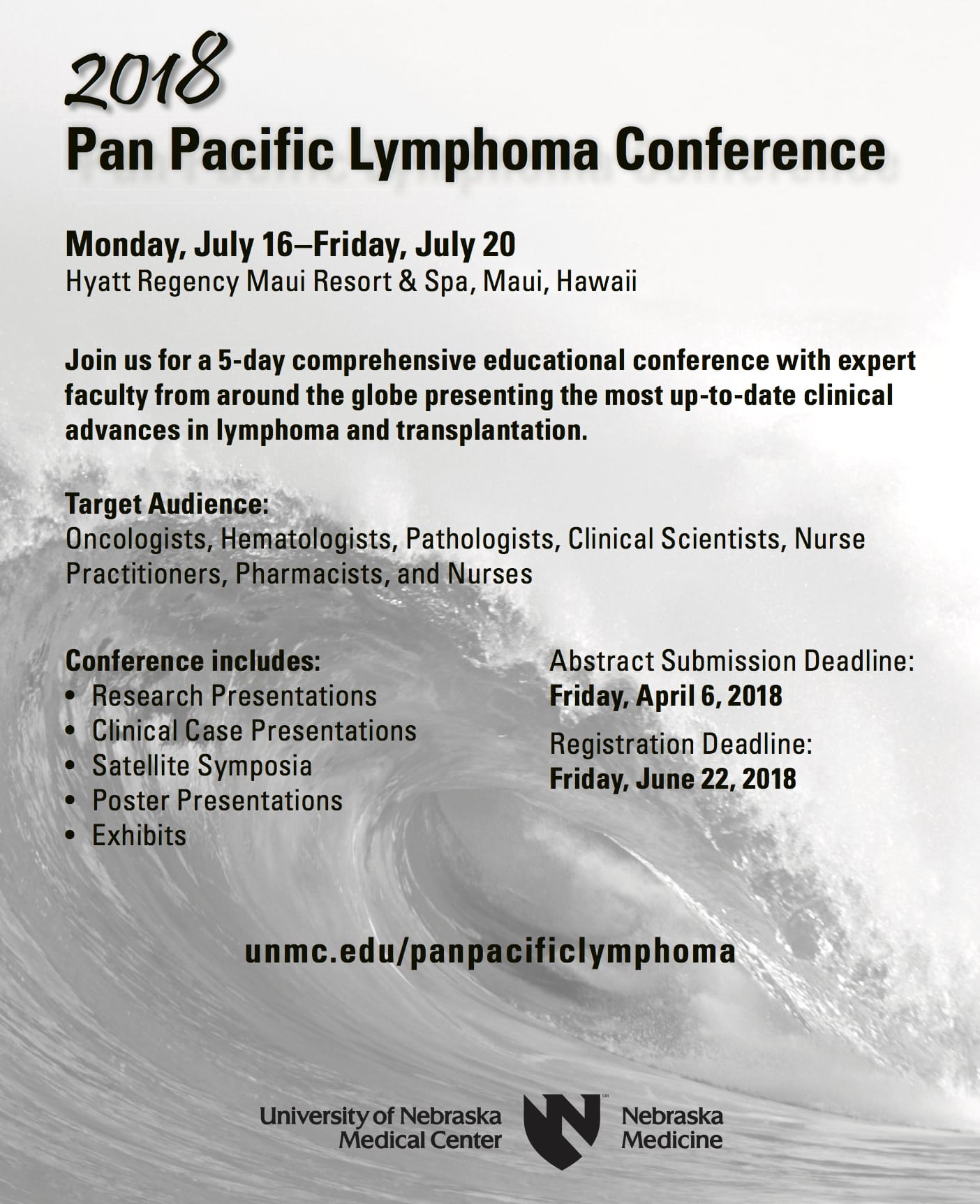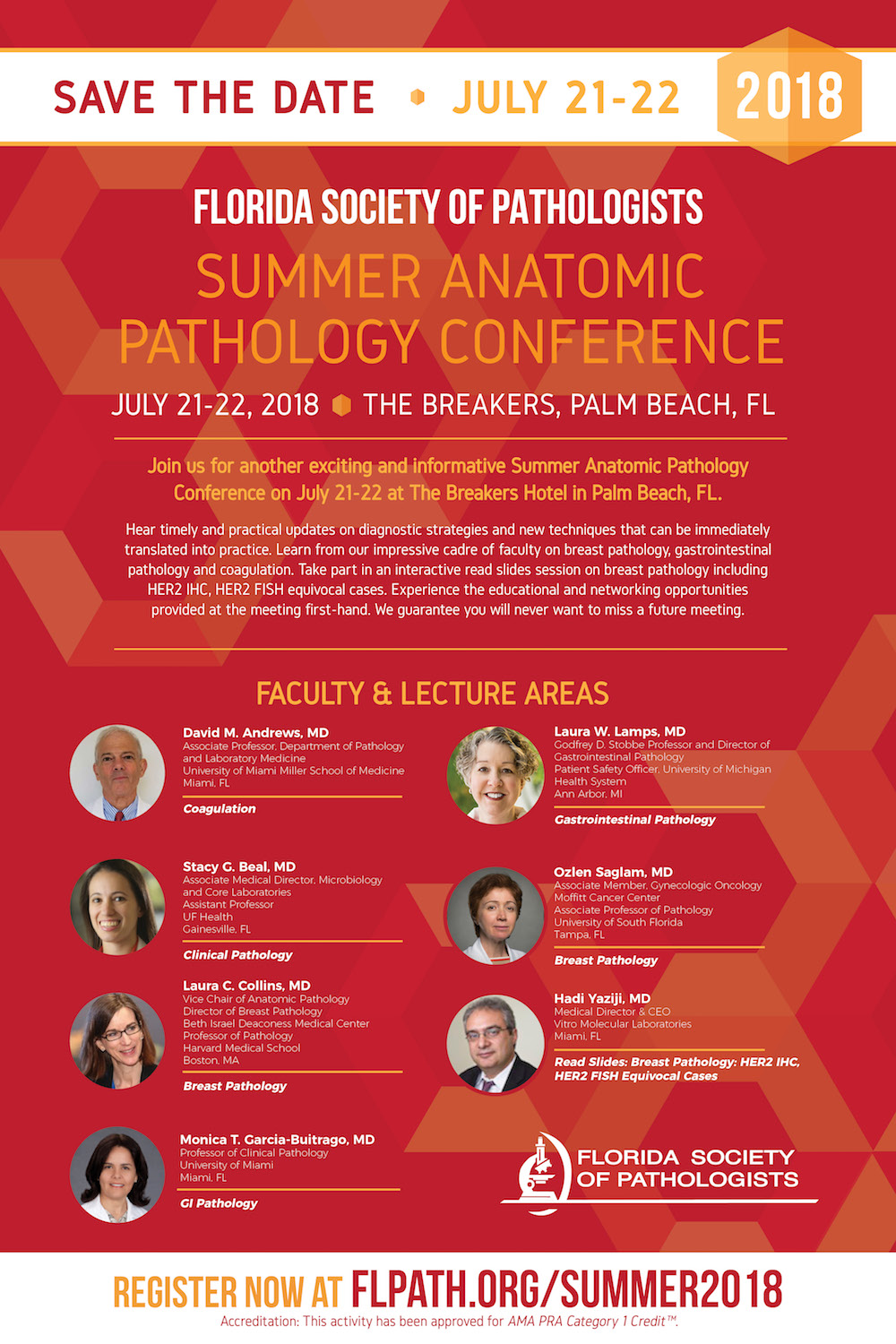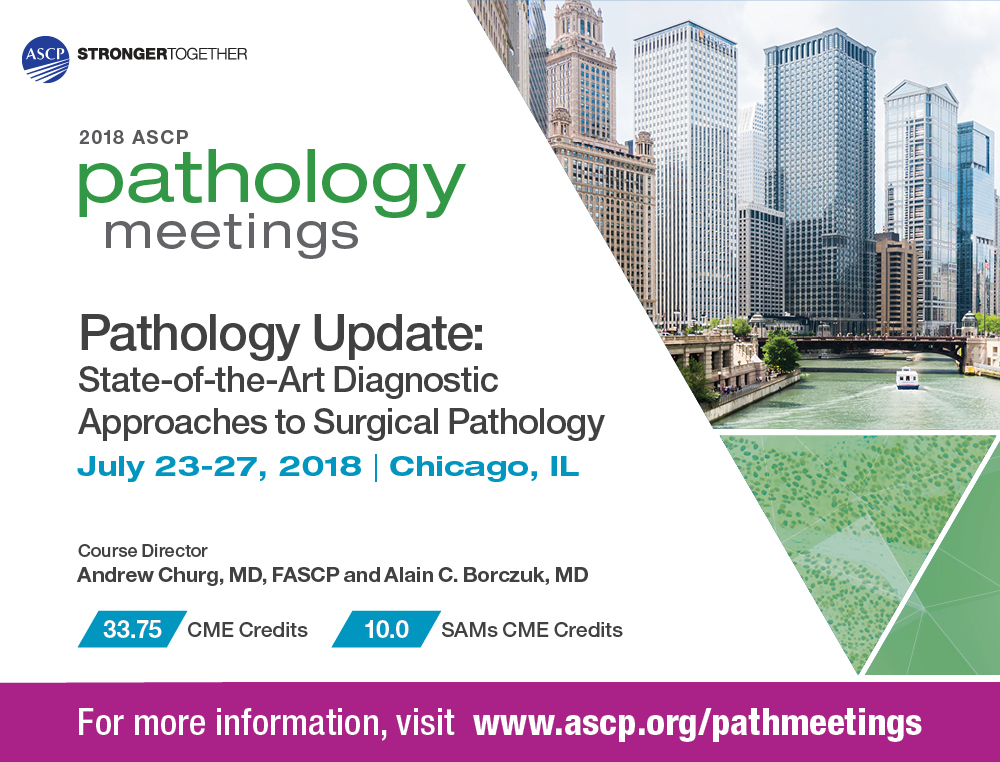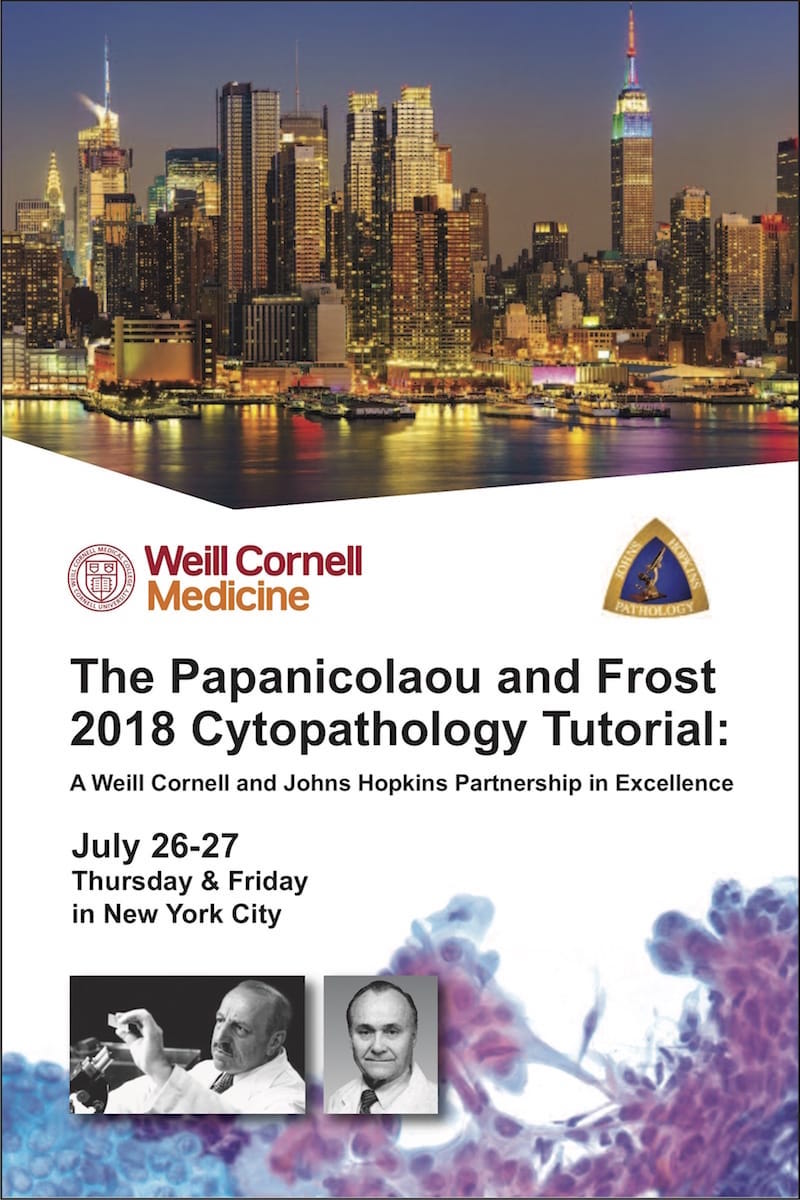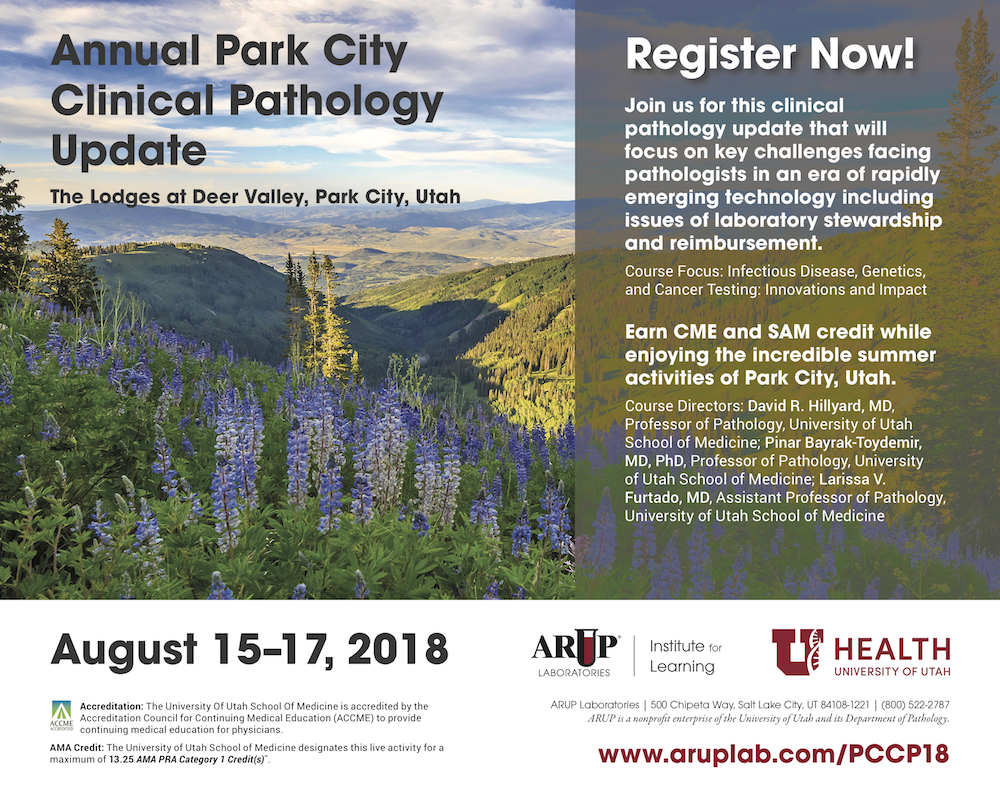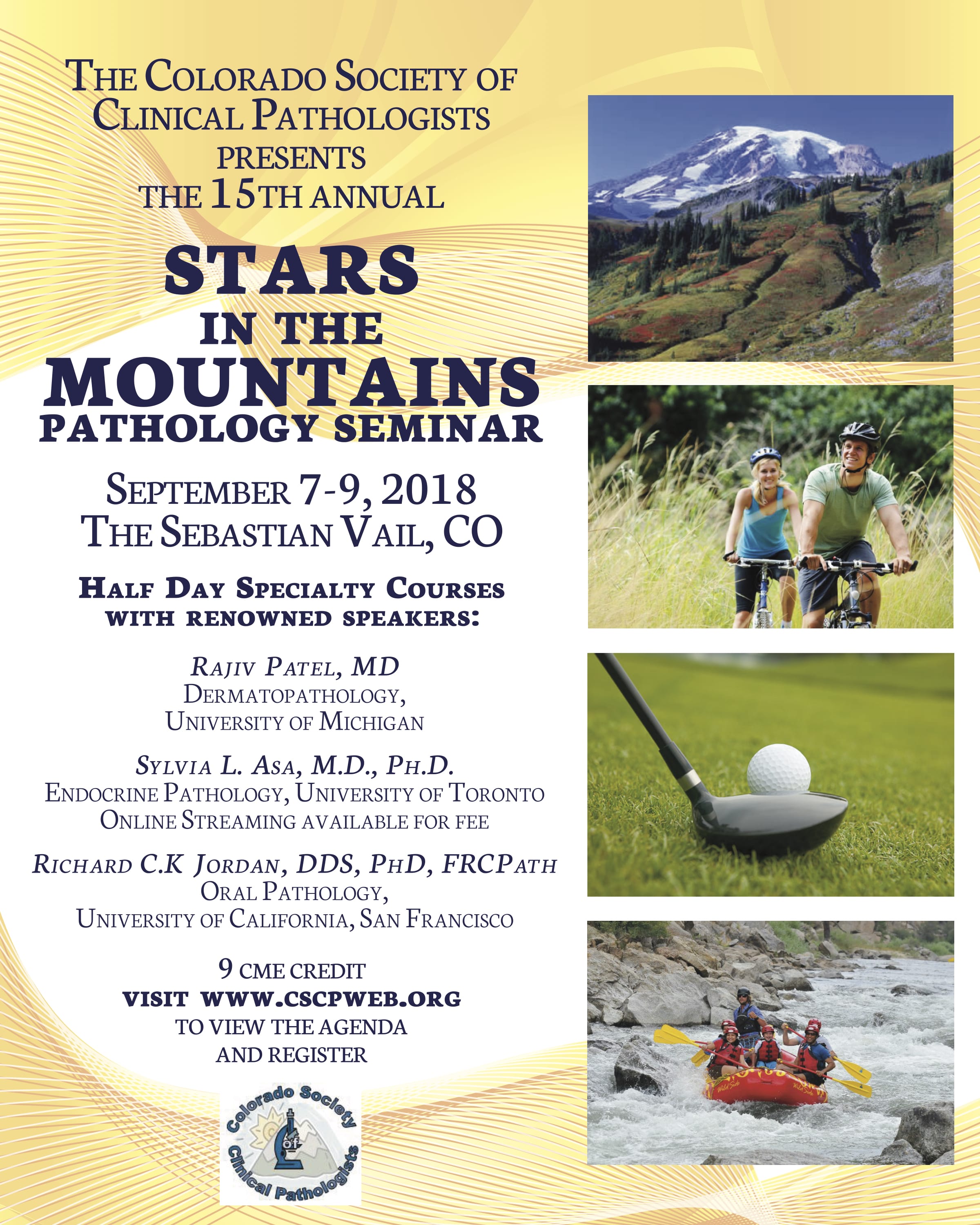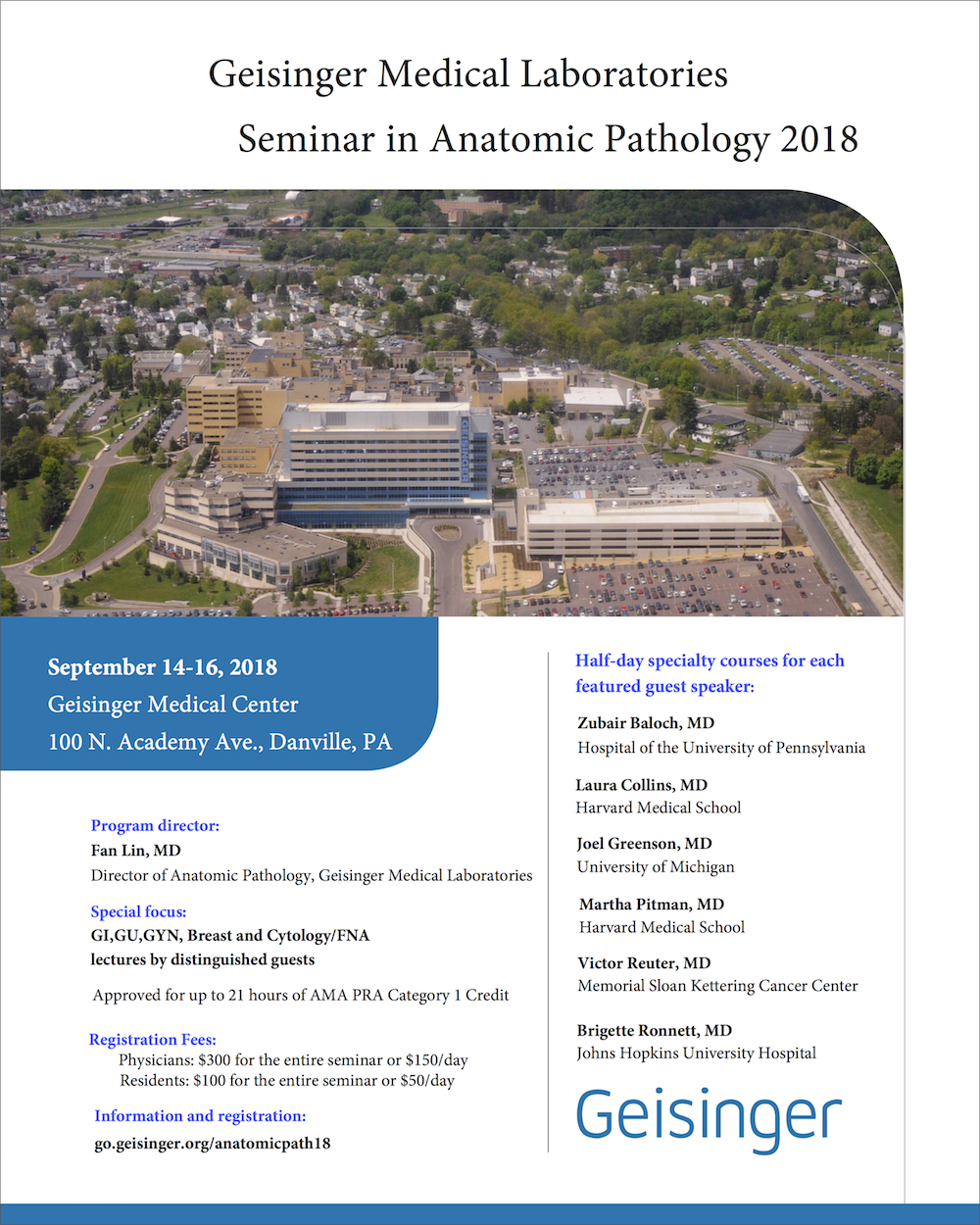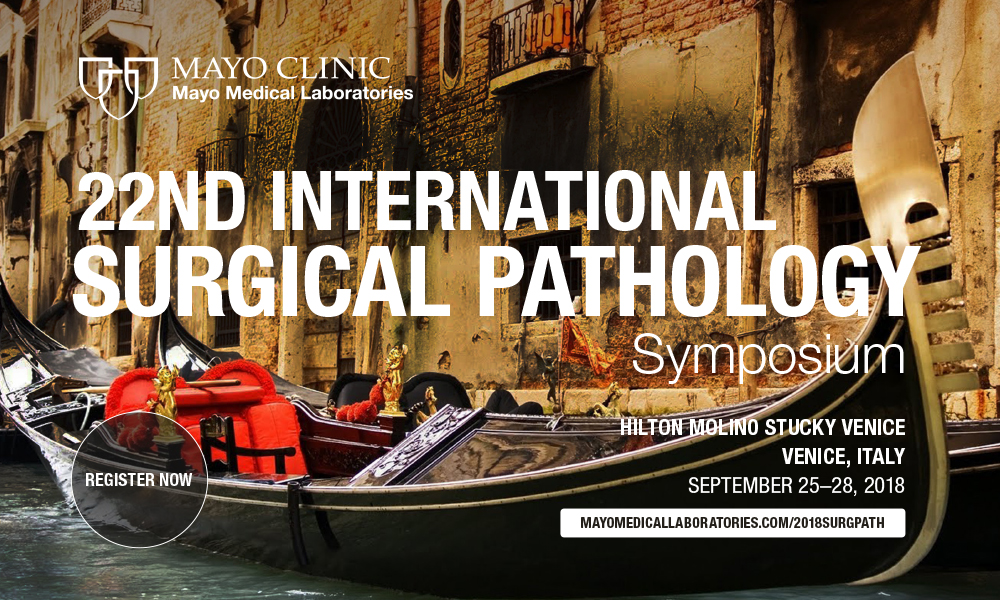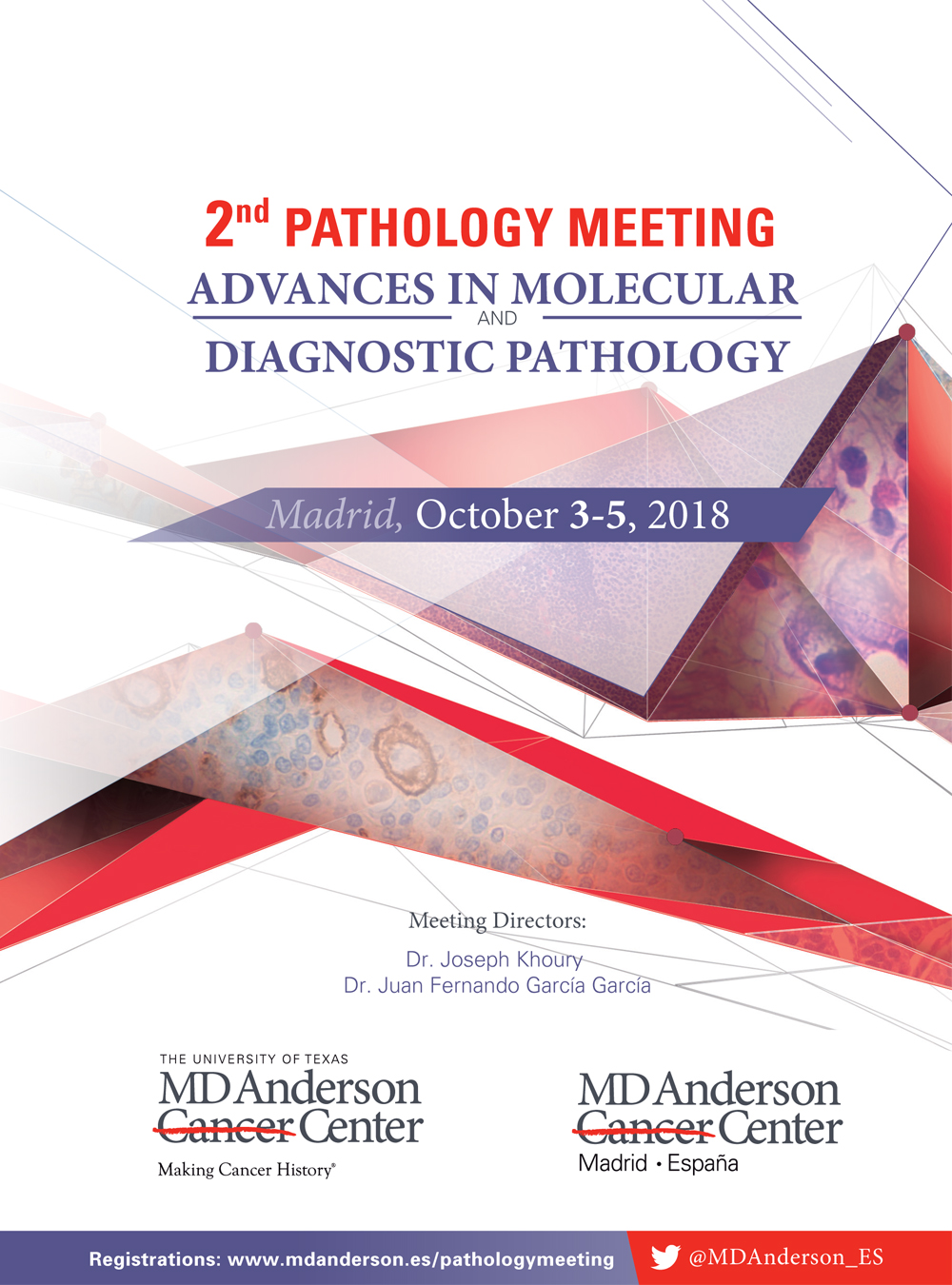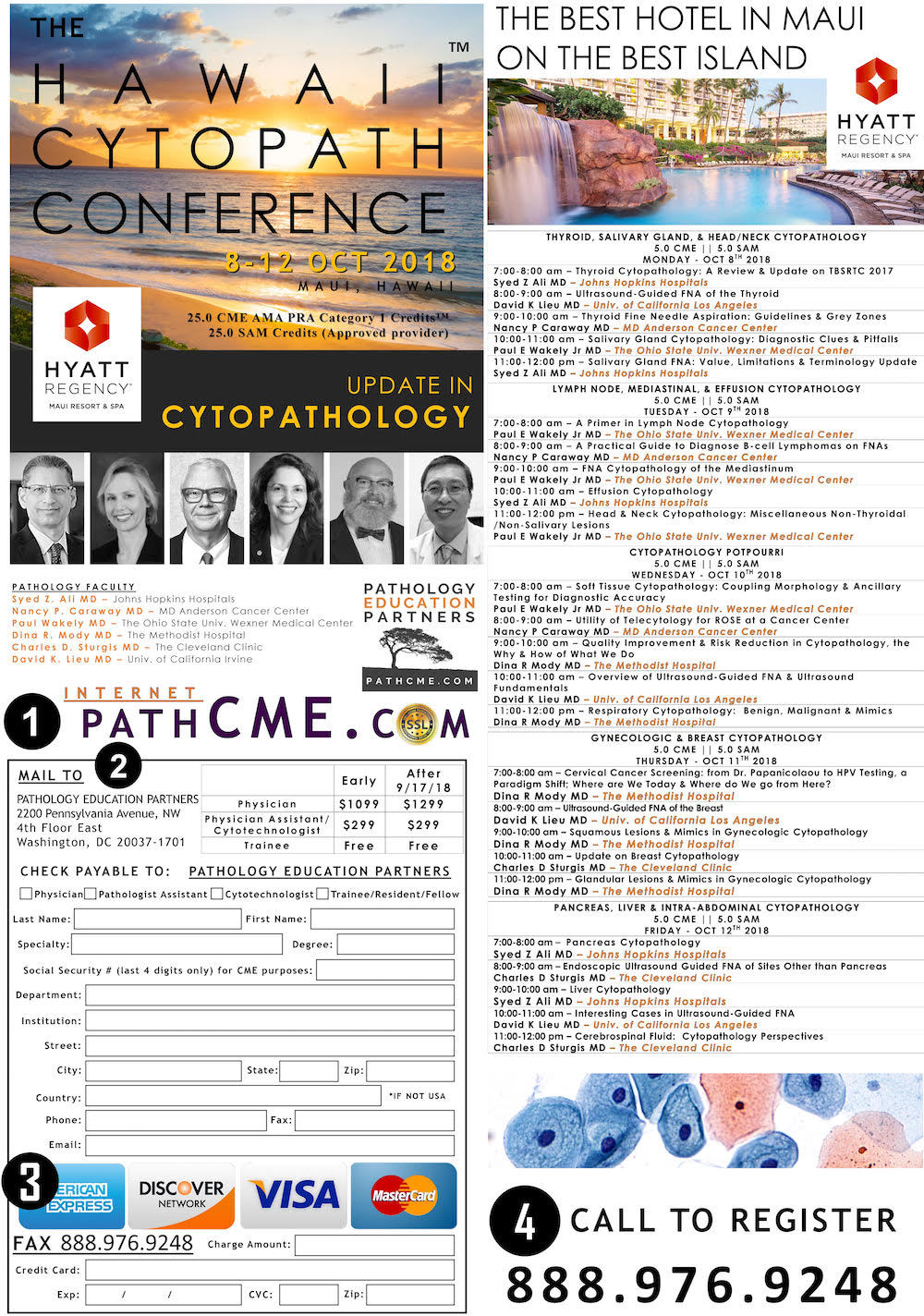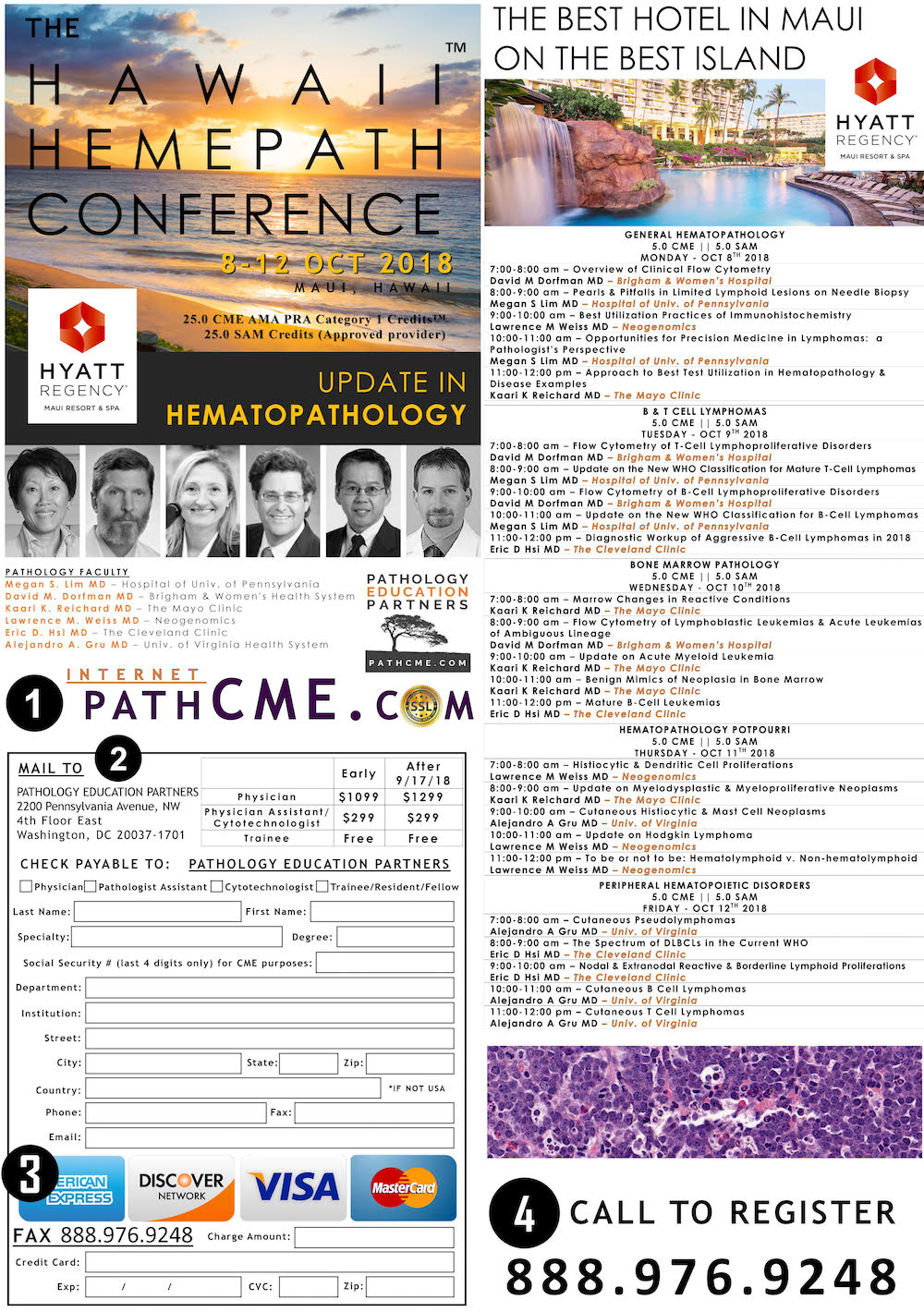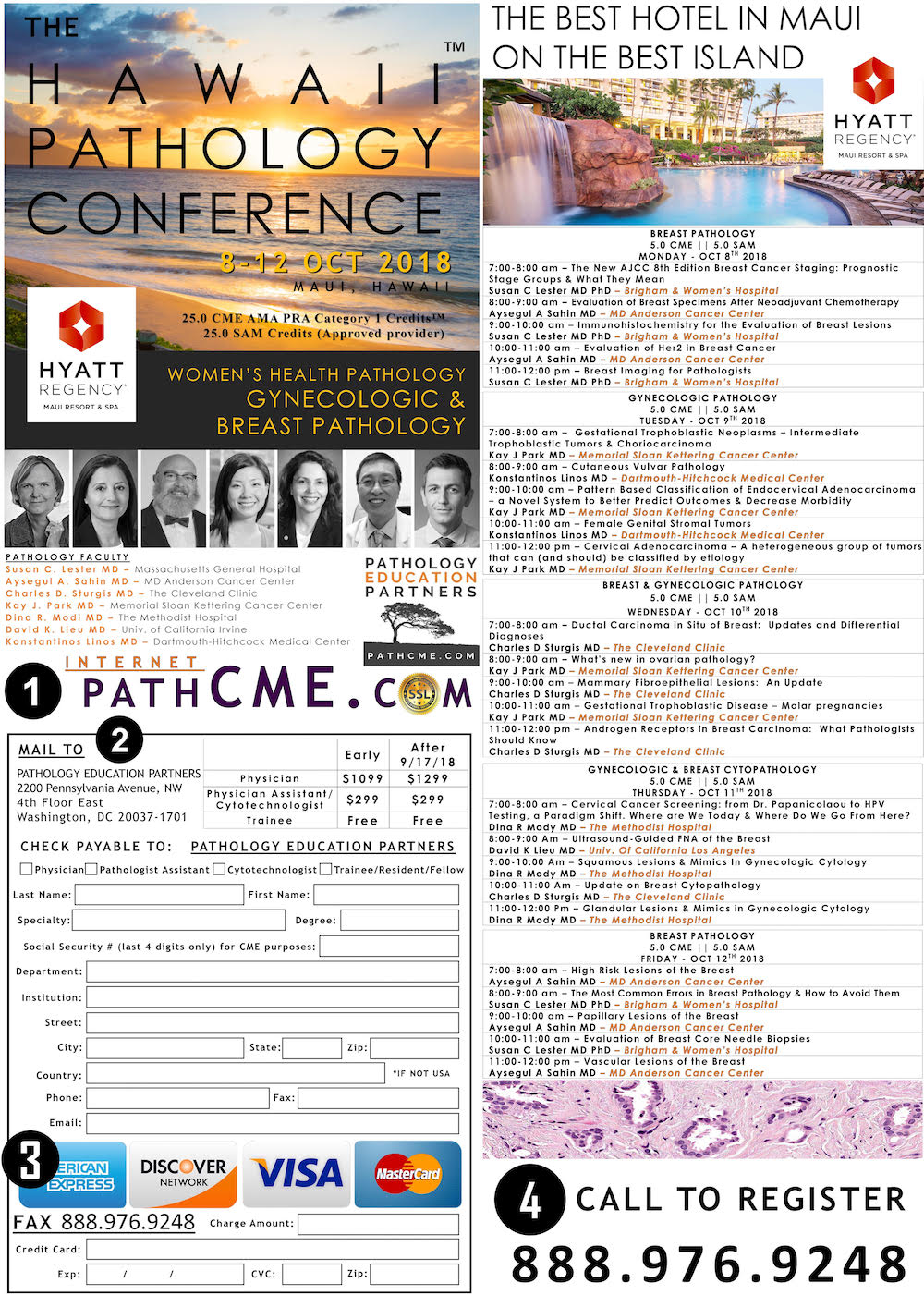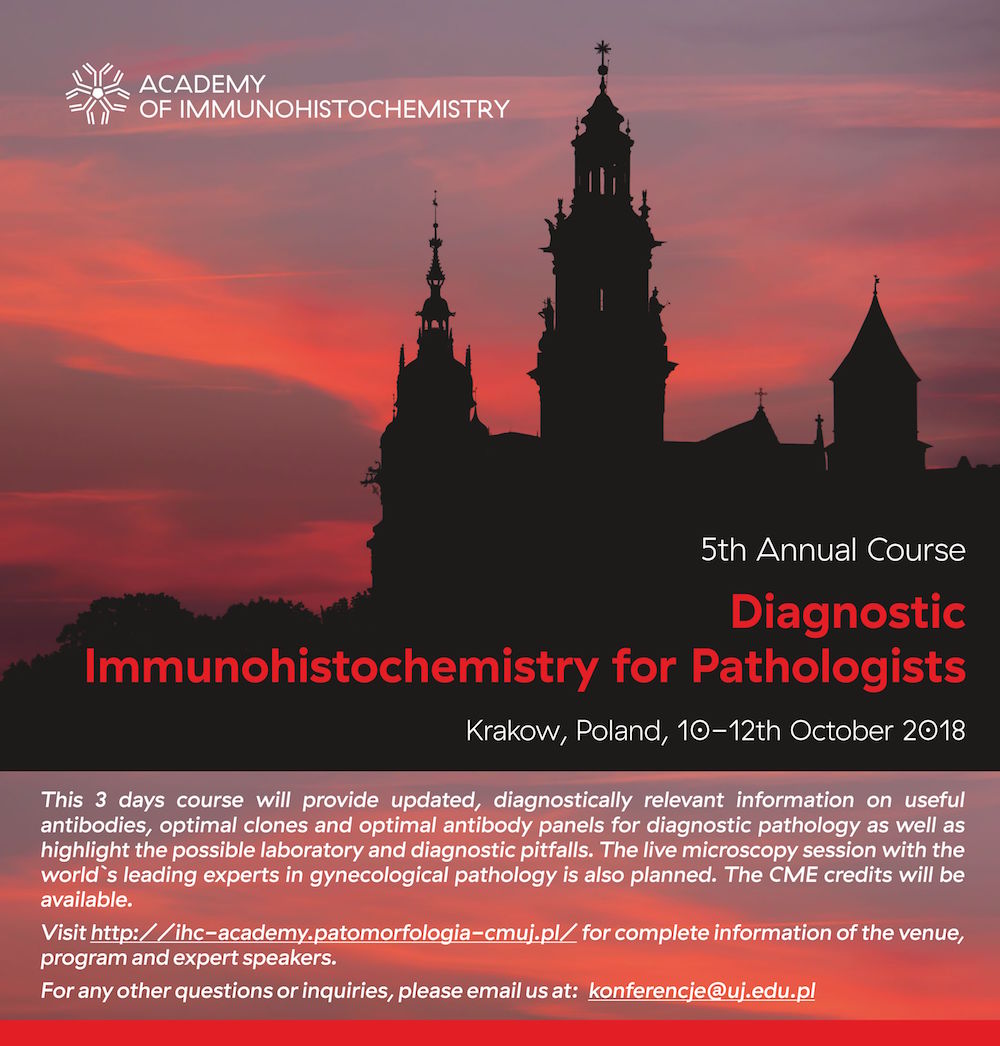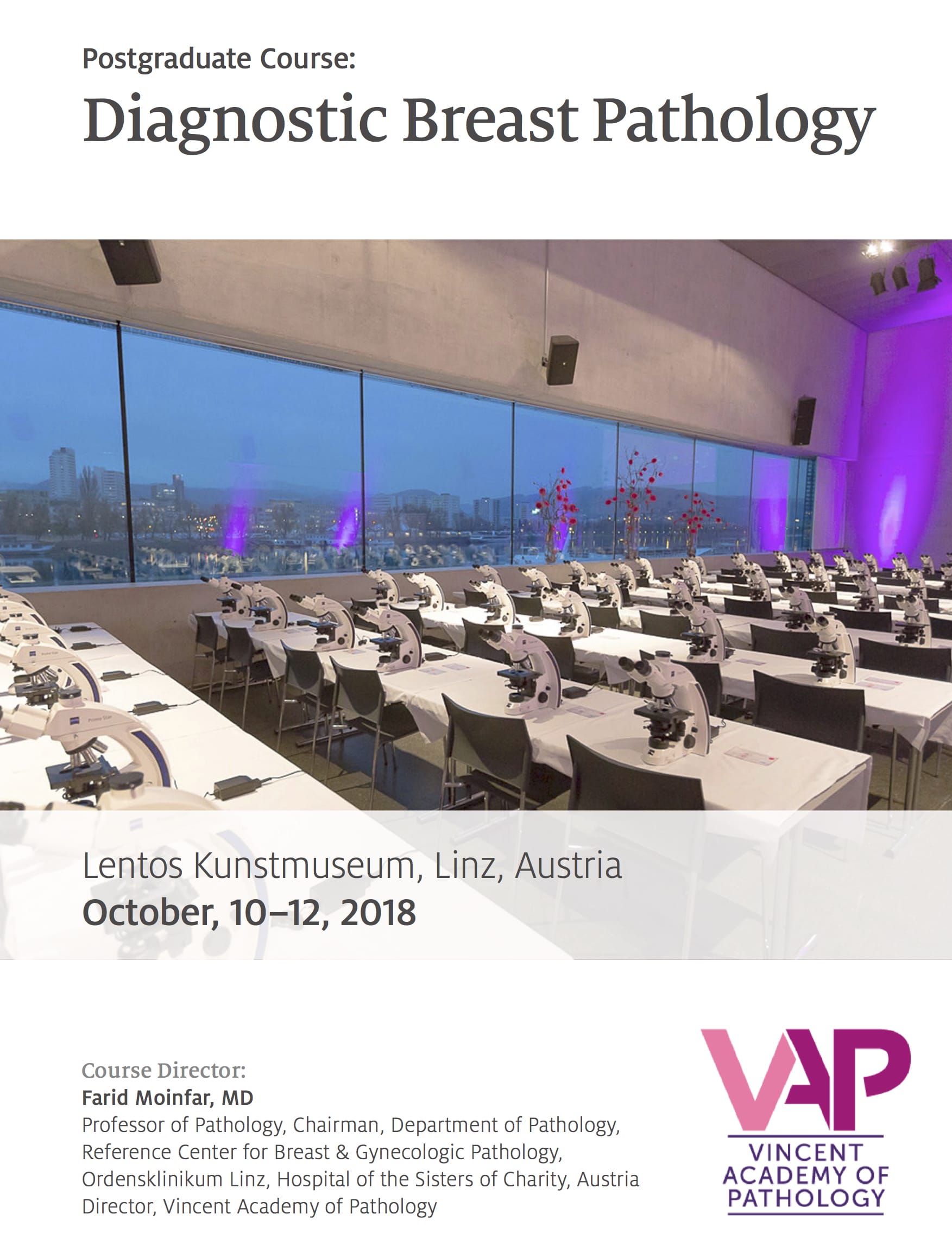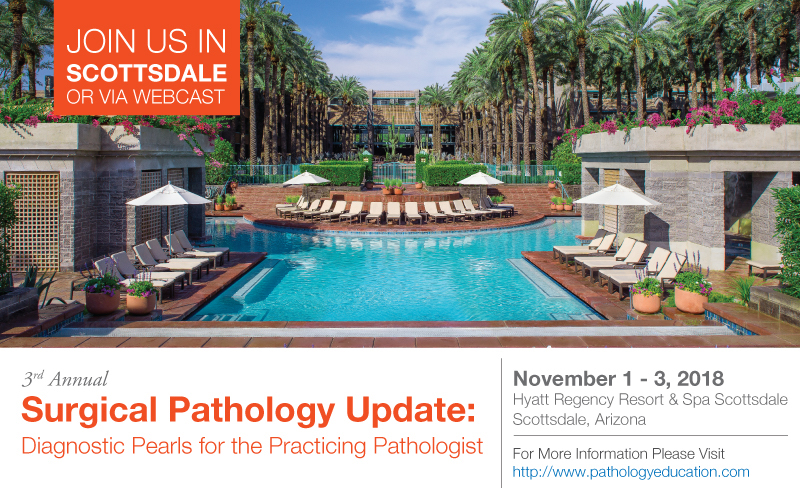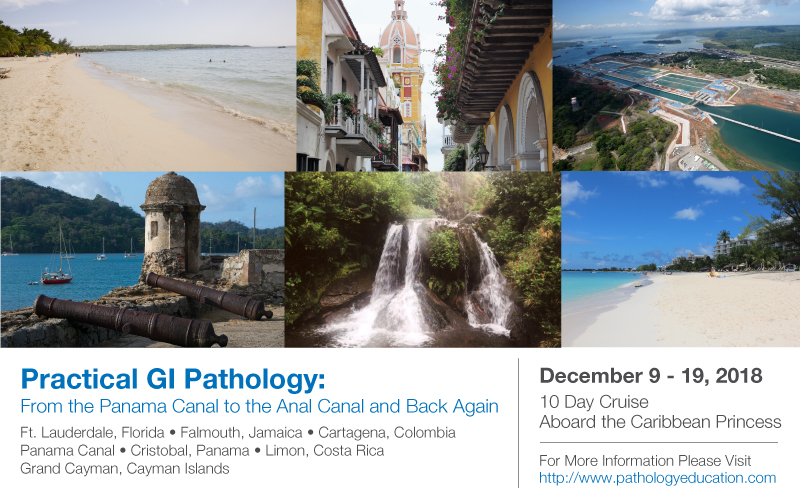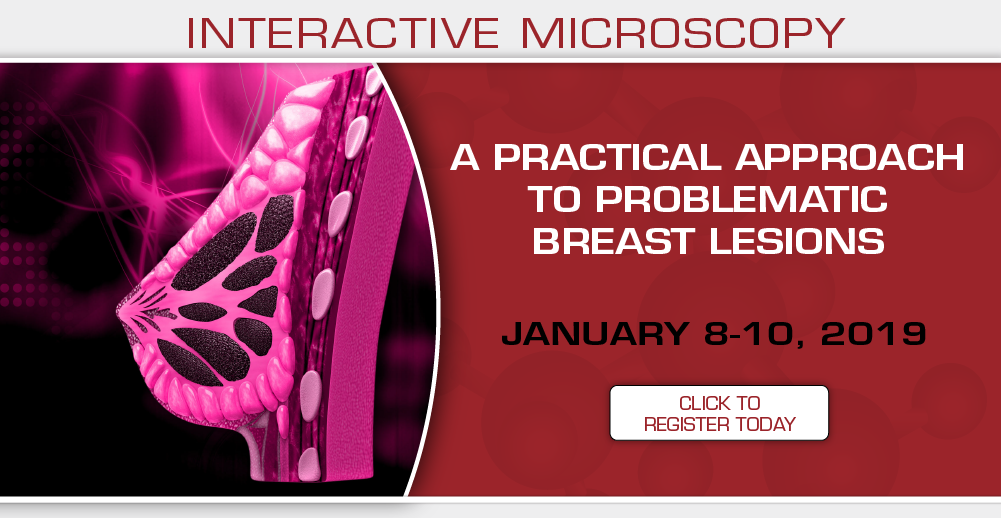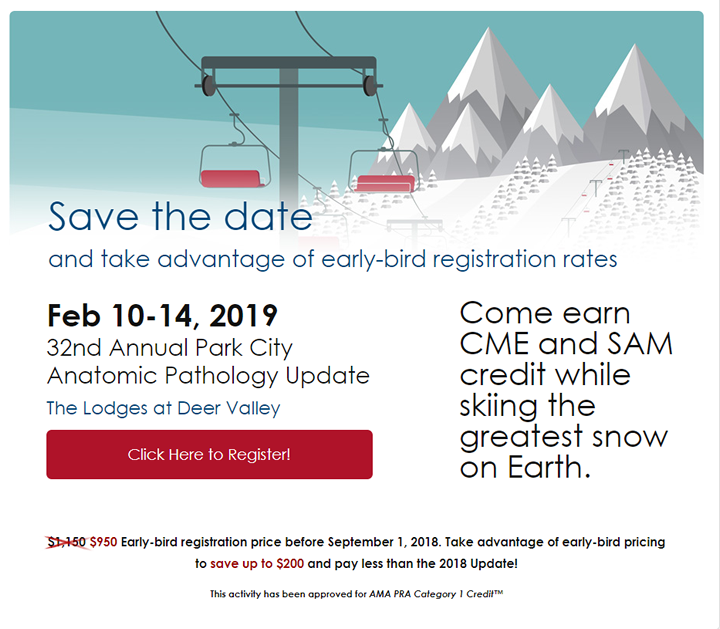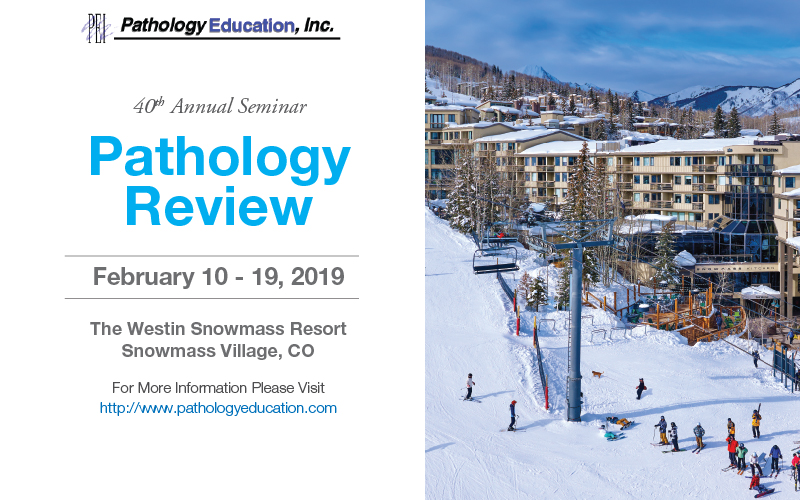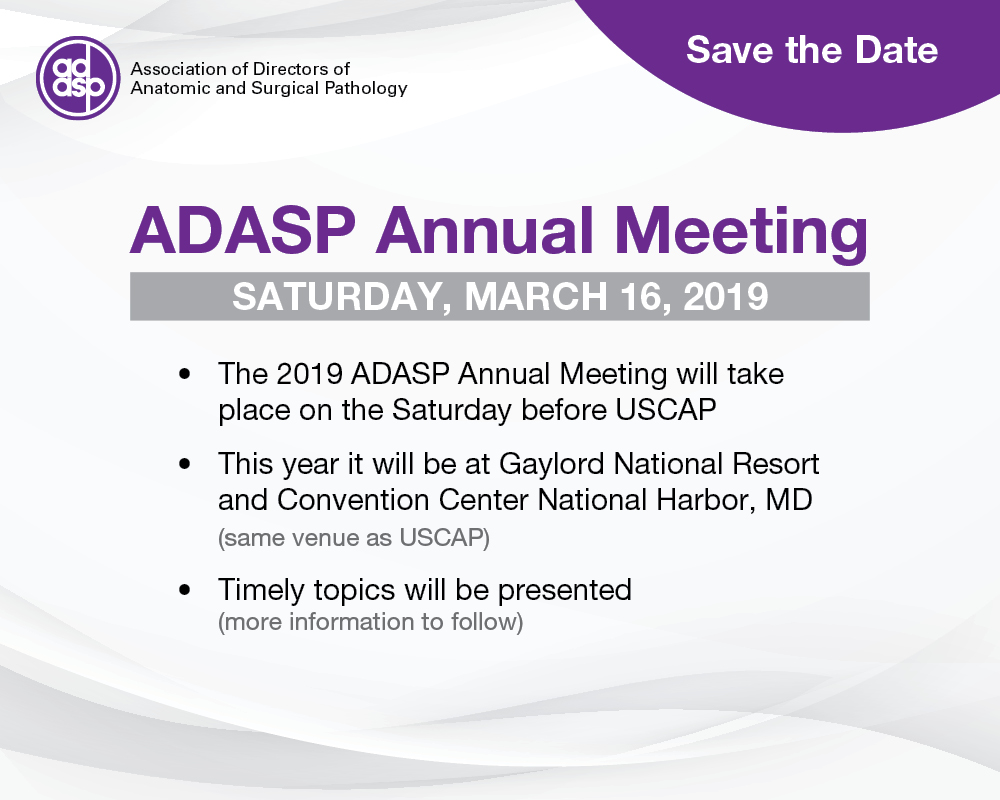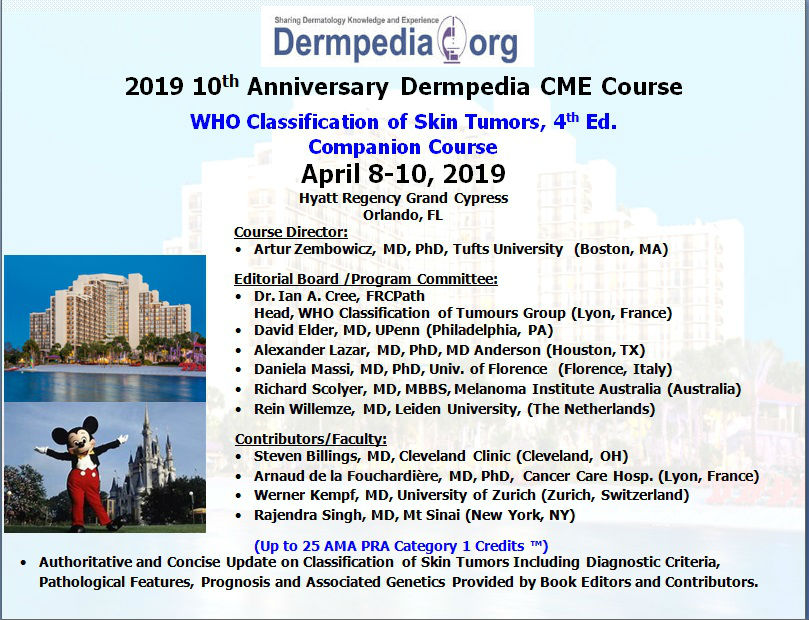Advertise your Pathology Conferences and Webinars with us!
(a) $375 for a one line listing (date, location, title and link); click here for a sample
(b) $675 for a highlighted listing (most of the ads below are highlighted listings) with graphics, text and links
(c) $1,500 for a highlighted listing and one email blast or social media posting featuring your ad; click here for a sample
Map of US with regions

University of California, San Diego, Department of Pathology
Diagnostic Advances in Surgical Pathology and Cytopathology
May 4 - 5, 2018
Hilton San Diego Bayfront, San Diego, CA

Registration fee: $495
P: 858-534-3940 | F: 858-534-1896 | E: ocme@ucsd.edu | Web: https://cme.ucsd.edu/pathology
Program Directors: Donna Hansel, MD, PhD, Mojgan Hosseini, MD
Guest Faculty: Lester D.R. Thompson, MD and Joel K. Greenson, MD
Course Description
This two-day interactive course will address key updates in genitourinary, gynecologic, gastrointestinal and liver, lung and head/neck pathology. A stepwise approach to pathology diagnosis in these subspecialty topic areas in surgical pathology and cytopathology will be addressed. The course will also provide guidance in the use and interpretation of molecular and immunohistochemical testing in difficult diagnostic scenarios.
Specific topics that will be covered include: Prostate Cancer Classification and Grading, Invasive Bladder Cancer Subtypes and Variants, Challenges in Urine Cytology, Inflammation and Infection of the Gastrointestinal Tract, Pattern-Based Approaches to Liver Biopsies, Gastrointestinal Polyps, Lung Cancer Classification and Molecular Testing, Salivary Gland Neoplasms, Milan Classification System, Frozen Section Interpretation of Pelvic Lesions, Pseudoneoplasms and Mimics of Endometrial Carcinoma, Atypical Glandular Cells on Pap Smear, Head and Neck Neoplasms, and Sinonasal Lesions.
The format includes interactive didactic and video microscopy sessions presented by internationally recognized guest speakers and expert subspecialty faculty from the University of California at San Diego.
Target Audience
This course is designed for practicing pathologists across community and academic centers and pathology residents and fellows.
Course Objectives
At the completion of this course, participants will be able to:
• Discuss the most recent changes in prostate cancer pathology classification and diagnosis
• Apply critical diagnostic criteria to appropriately classify bladder cancer subtypes and variants
• Recall diagnostic criteria essential to the diagnosis of inflammatory and infectious lesions of the gastrointestinal tract
• Apply a pattern-based approach to the diagnosis of liver biopsies
• Confirm and diagnose gastrointestinal polyps and apply appropriate ancillary testing
• Identify lung cancer subtypes and utilize appropriate molecular testing in these lesions
• Use updated criteria to correctly diagnose salivary gland and sinonasal tract lesions
• Apply practical criteria in the diagnosis of frozen sections of pelvic lesions
• Recognize mimics of endometrial carcinoma in pathology samples
• Use a differential diagnosis approach to correctly diagnose atypical glandular lesions on Pap smear and correlate these with biopsy specimens
• Determine and properly utilize Milan and Paris criteria in the diagnosis of salivary gland and urine cytology, respectively
• Integrate appropriate immunohistochemical analysis to gastrointestinal, genitourinary, lung, head/neck and gynecologic specimens
• Analyze and identify problems in building a quality control program in a practice
This Activity meets the American Board of Pathology’s Maintenance of Certification (MOC) requirements for Part II (CME and SAMs) lifelong learning. Participants in MOC may earn up to 15.00 SAM credits.
[#6800]
USCAP Presents:
DERMATOPATHOLOGY IN THE DESERT
Dermatopathology in the Desert is an annual resource for surgical pathologists and dermatopathologists to refine their diagnostic skills when confronted with complex and unusual melanocytic lesions, adnexal tumors, cutaneous lymphomas/soft tissue tumors, and diseases of the nails. The struggle to diagnose lesions in these categories is manifest by the nature of consultations received by the faculty, provoking their awareness of need for continuing education and updates in the context of contemporary revisions to precise diagnostic criteria and ancillary studies.
Course Location: Palm Springs, CA
Course Director: Steven D. Billings, M.D.
|
This course will provide pathologists with a review of diagnostic issues encountered in everyday clinical hematopathology practice and present up-to-date diagnostic approaches utilizing the recently revised WHO Classification. Topics will include an in-depth discussion of microscopic evaluation of hematolymphoid disorders, as well as the appropriate use of a broad range of ancillary studies. The course will address common pitfalls in the morphologic interpretation and immunophenotyping of hematolymphoid proliferations and discuss how to use cytogenetics and molecular testing to inform the diagnosis, using evidence-based guidelines. Material will be presented in lecture format by leading experts in the field and will include interactive sessions consisting of case-based presentations that illustrate common diagnostic pitfalls and underscore points made during the lectures. |
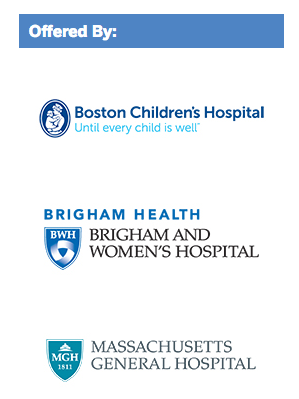
|
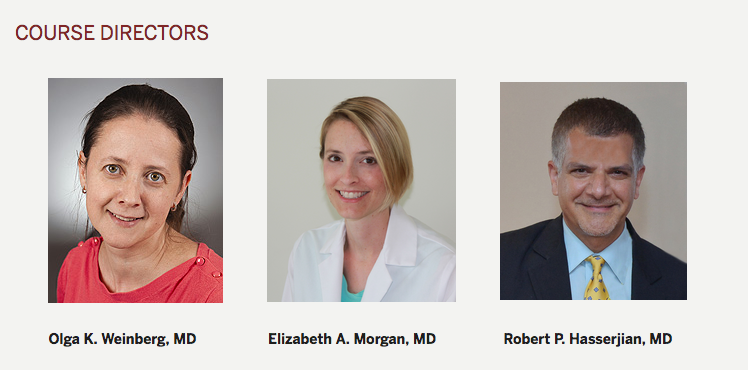
[#6526]
June 2, 2018, Saturday in Pathology - Registration, Sunnybrook Health Sciences Centre, Toronto, Ontario (Canada) [#7046]
USCAP Presents:
The Brave New World of Head and Neck Pathology: Updates on the WHO and More
Head and neck pathology represents a significant portion of surgical pathology practice. Studies have shown this area to be particularly treacherous to community pathologists, with up to 53% of diagnoses changed (including 7% with major changes) upon second review at tertiary care hospitals.
Complicating this inherent difficulty, there have been numerous recent developments in the field of head and neck pathology. Novel entities have been described, pathognomonic molecular alterations have been uncovered, and major shifts in diagnostic classification schemes have been proposed.
This interactive microscopy course will help pathologists to stay up-to-date and maintain proficiency in head and neck pathology through an intimate mentoring experience with experts.
Course Location: Palm Springs, CA
Course Director: Justin Bishop, M.D.
June 21-22, 2018, International Academy of Pathology - French Division (AIP-DF): Thyroid Pathology for the Practising Pathologists, Hôpital de la Pitié-Salpêtrière, Paris (France), [#7206]
31st Annual South Carolina Society of Pathologists Meeting
Gordon R. Hennigar Lecture
September 7-9, 2018

Omni Grove Park Inn, Asheville, North Carolina
Practical Issues and Recent Updates In Genitourinary (GU) Pathology
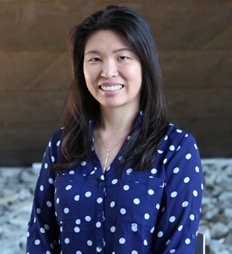
Chia-Sui (Sunny) Kao, MD
Stanford University

Online Registration
Or contact Debbie Shealy: debbies@scmedical.org
[#7128]
September 6-8, 2018, The Banff Pathology Course, Banff Centre for Arts and Creativity, Banff, Alberta, (Canada) [#6075e]
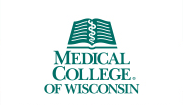
Friday, September 14 – Sunday, September 16, 2018
The Hilton Milwaukee City Center
509 W. Wisconsin Avenue
Milwaukee, WI 53203
The Medical College of Wisconsin, Department of Pathology
11th Annual Midwestern Conference: Update Course in Surgical Pathology
Directed by Dr. Saul Suster, MD

Registration
Conference website
Contact information for registration:
Name: Shannon Majewski, Course Coordinator
Telephone: (414) 805-6976
Email: midwesternconference@mcw.edu
[#6858]
USCAP Presents:
Diagnostic Pitfalls in Urologic Pathology
Prostate needle core biopsies, transurethral resections of prostate, radical prostatectomy specimens, kidney biopsies, nephrectomy specimens, bladder biopsies, partial or total cystectomy specimens, testicular biopsies and orchiectomy specimens are frequently handled by pathology residents/fellows, general surgical pathologists and/or urologic pathologists in academic institutions and private practices. The spectrum of experience and frequency of disease entities are variable. These specimens present diagnostic challenges and risks to the pathologists who evaluate them. This course, based on pragmatic consultation cases and some routine, in-house cases is designed to reinforce accurate diagnoses, avoid diagnostic pitfalls and close existing professional practice gaps.
Course Location: Palm Springs, CA
Course Director: Adeboye O. Osunkoya, M.D.
September 28-29, 2018, The Ontario Association of Pathologists: Annual General Meeting, Tremblant, Quebec (Canada) [#7011b]
USCAP Presents:
A Journey Through Diagnostically Challenging Areas in Gynecological Pathology
This inaugural co-branded interactive microscopy course presents the synergistic union of expert surgical pathologists from the prestigious Arthur Purdy Stout Society and from USCAP, collaborating (through education of pathologists) to eliminate a variety of practice gaps in diagnostic surgical pathology. For example, there is a misdiagnosis rate of about 10% in breast biopsies, but for some notoriously problematic lesions, the rate is even higher.
The World Health Organization (WHO) has incorporated new, significant developments in various areas of diagnostic gynecologic pathology into its 2014 WHO Classification of Tumours of Female Reproductive Organs. This publication serves as a systemic educational tool for practicing pathologists to adopt new disease classifications and related diagnostic criteria, a guide to clinical management of patients and a disease framework for further investigations. This course parallels and reflects WHO updates and encompasses a broad review of diagnostically challenging areas in gynecologic pathology through intimate mentoring sessions around multi-head microscopes for interactive learning and real-time interchanges focused on the diagnostic experience. The faculty from Harvard, Yale and Stanford will enrich and stimulate you in an exceptional venue within a premiere resort destination (Palm Springs, CA).
Course Location: Palm Springs, CA
Course Director: Pei Hui, M.D., Ph.D.
USCAP Presents:
PLACENTAL PATHOLOGY - A Tour of Common and Rare Pathologies with a Focus on Clinical Relevance
The placenta provides a wealth of information, retrospectively about the fetus and prospectively regarding the infant. Its examination is an essential component of the autopsy in cases of fetal or infant death, often gives useful insights of the diagnosis and treatment of sick newborns, and reflects the impact of maternal disorders on pregnancy. Yet, most pathologists have had little or no education or training in the examination of the placenta, including its histologic appearance in health and disease, and particularly the range of appearances with gestational age. Pathological examination of the placenta is probably the most under-utilized pathologic assessment of any human tissue.
This focused course provides the unique opportunity to learn from two experts in an intimate mentoring environment, and to close the practice gaps that reflect deficits in teaching and learning the extraordinary variants of placental pathology and how they relate clinically to infant and maternal management.
Course Location: Palm Springs, CA
Course Director: Theonia K. Boyd, M.D.
USCAP Presents:
THORACIC PATHOLOGY
Thoracic specimens are commonly encountered in clinical practice derived from biopsy and surgical procedures on pulmonary, cardiovascular and mediastinal tissue. The panorama includes neoplasms and non-neoplastic entities. The fact that many of these require evaluation for medical diseases of the thorax provokes anxiety among pathologists, particularly where subspecialty pathologists are not readily available. The last five years contributed a dizzying array of updates in classification, nomenclature and reporting guidelines. Therefore, it’s time for pathologists to update their knowledge and skills in the diagnosis of thoracic pathology in an intimate mentoring environment that unites experienced experts with pathologists desiring a contemporary review of modern thoracic pathology.
Course Location: Palm Springs, CA
Course Director: Joseph J. Maleszewski, M.D.
USCAP Presents:
Modern Surgical Pathology Through the Expert Eyes of APSS-USCAP
This inaugural co-branded interactive microscopy course presents the synergistic union of expert surgical pathologists from the prestigious Arthur Purdy Stout Society and from USCAP, collaborating (through education of pathologists) to eliminate a variety of practice gaps in diagnostic surgical pathology. For example, there is a misdiagnosis rate of about 10% in breast biopsies, but for some notoriously problematic lesions, the rate is even higher.
A review of the literature and the collective clinical experience of this faculty as consultant surgical pathologists have clearly documented areas in diagnostic surgical pathology that remain problematic even for experienced pathologists. Examples include the categorization of proliferative breast lesions, cervical intraepithelial neoplasia, small glandular proliferations in the prostate, and soft tissue lesions. With the frequent use of core needle biopsy, pathologists are often faced with the challenge of distinguishing these entities on small specimen samples.
The value of this course is its intent to eliminate diagnostic errors by highlighting pitfalls and approaches to resolve them using routine microscopic examination of H&E-stained sections and immuno-stains. The role of newer adjunctive molecular tests will also be discussed where appropriate. Thus, this course addresses medical knowledge and competence with the goal of improving clinical practice.
Course Location: Palm Springs, CA
Course Director: Laura C. Collins, M.D.
November 4-6, 2018, Digital Pathology Association: Pathology Visions, Manchester Grand Hyatt, San Diego, California (USA) [#7028]
![]()
November 12th – November 16th, 2018
Marriott Miami Biscayne Bay
Miami, Florida
Tutorial on Pathology of the GI Tract, Pancreas and Liver

The Tutorial, sponsored by The Department of Pathology and Laboratory Medicine, Weill Cornell
Medicine, will be held under the direction of Dr. Rhonda K. Yantiss, Professor of Pathology and
Laboratory Medicine. The program will consist of lectures and case presentations. The Tutorial
faculty will prepare course materials comprised of lecture notes and reference citations covering all
of the topics presented at the Tutorial.
The registration fee is $1,275, after October 5, 2018 $1,375.
For further information, please contact:
Ms. Jessica Misner
Department of Pathology and Laboratory Medicine
WMC Room-302
1300 York Avenue
New York, N.Y., 10065
Telephone: (212) 746-6464
Fax: (212) 746-8192
Email: jep2018@med.cornell.edu
Website: www.cornellpathology.com
Registration: available soon
[#7038b]

December 1, 2018
Dearborn Inn, Dearborn, Michigan
SAVE THE DATE
Michigan Society of Pathologists
Fall Conference

To register, please call 248 374-9375 or email msp@michpath.org
Michigan Society of Pathologists Website
Hotel
[#7018b]
USCAP Presents:
Recent Advances in Soft Tissue Tumor Pathology: Evolving
Classification, Novel Molecular Findings and New Diagnostic Markers
The diagnosis of soft tissue tumors can be a significant challenge (even for experienced pathologists) because of their rarity, the broad morphological spectrum of mesenchymal tumors, and overlap with other soft tissue tumors and non-mesenchymal neoplasms. The classification of soft tissue tumors continues to evolve, following the description of “new” tumor types, the discovery of novel molecular genetic alterations, and the development of increasingly specific diagnostic immunohistochemical markers. If your specialty interest is in soft tissue pathology, or if your practice requires enhanced competency in evaluating soft tissue lesions, this course is designed to familiarize you with recently-described soft tissue tumors and recently developed diagnostic markers.
Course Location: Palm Springs, CA
Course Director: Jason L. Hornick, M.D., FRCPath
USCAP Presents:
A Practical Approach to Problematic Breast Lesions
This interactive microscopy course, taught by experts from Harvard Medical School, Stanford and Memorial Sloan Kettering Cancer Center, is designed to eliminate a variety of practice gaps in diagnostic breast pathology.
In general, there is a misdiagnosis rate of about 10% in breast biopsies, which may be even higher for some notoriously problematic lesions. This course (through intimate mentoring) attempts to reduce or eliminate diagnostic error by highlighting pitfalls and illustrating practical approaches to resolve them, using routine microscopic examination of H&E-stained sections with appropriate ancillary testing. The intended outcome is improved clinical practice and patient outcomes.
Course Location: Palm Springs, CA
Course Director: Laura C. Collins, M.D.
January 10-13, 2019, The Canadian Association of Pathologists: 9th Annual Resident Review Course, Mississauga, Ontario (Canada) [#7011c]
![]()
January 21st - January 25th, 2019
Naples Grande Beach Resort
Naples, Florida
Tutorial on Neoplastic Hematopathology

The Tutorial, sponsored by The Department of Pathology and Laboratory Medicine, Weill Cornell
Medicine, will be held under the direction of Dr. Daniel M. Knowles of Pathology and Laboratory
Medicine. The program will consist of lectures and case presentations. The Tutorial faculty will
prepare extensive lecture notes and reference citations electronically on our website, which will
cover all topics presented at the Tutorial.
The registration fee is $1,350, after December 28, 2018 $1,450.
For further information, please contact:
Ms. Jessica Misner
Department of Pathology and Laboratory Medicine
WMC Room-302
1300 York Avenue
New York, N.Y., 10065
Telephone: (212) 746-6464
Fax: (212) 746-8192
Email: jep2018@med.cornell.edu
Website: www.cornellpathology.com
Registration: available soon
[#7038c]
September 5-7, 2019, The Banff Pathology Course, Banff Centre for Arts and Creativity, Banff, Alberta, (Canada) [#6075f]
SAMPLE ONE LINE CONFERENCE LISTING:
Dates, Organization: Conference Title [linked to conference website], Venue, City, State (Country) [#Invoice]
SAMPLE ONE LINE WEBINAR LISTING:
Date and time, Organization: Webinar Title [linked to webinar website], speaker(s) [#Invoice]





